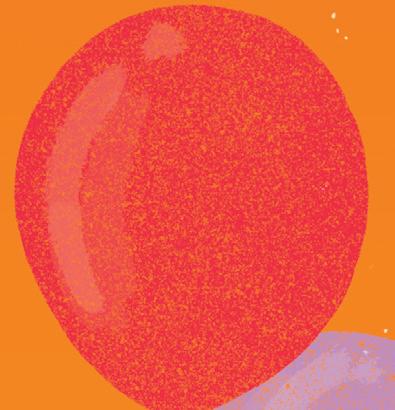
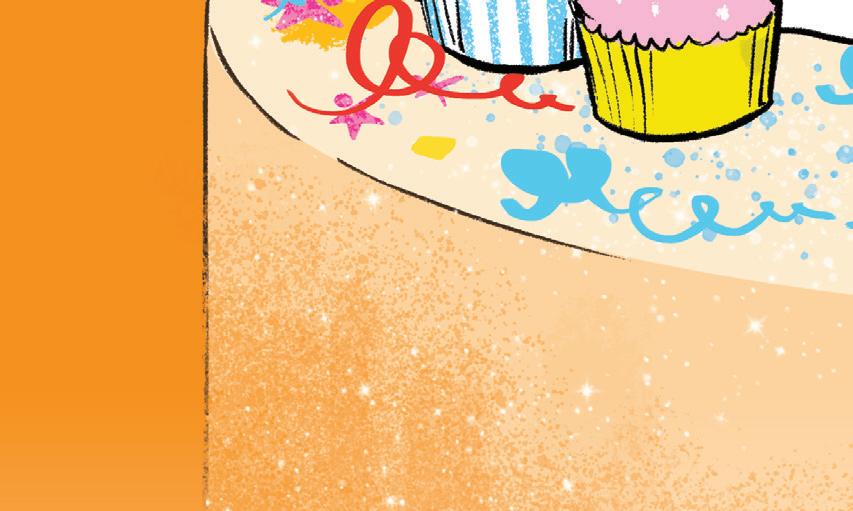
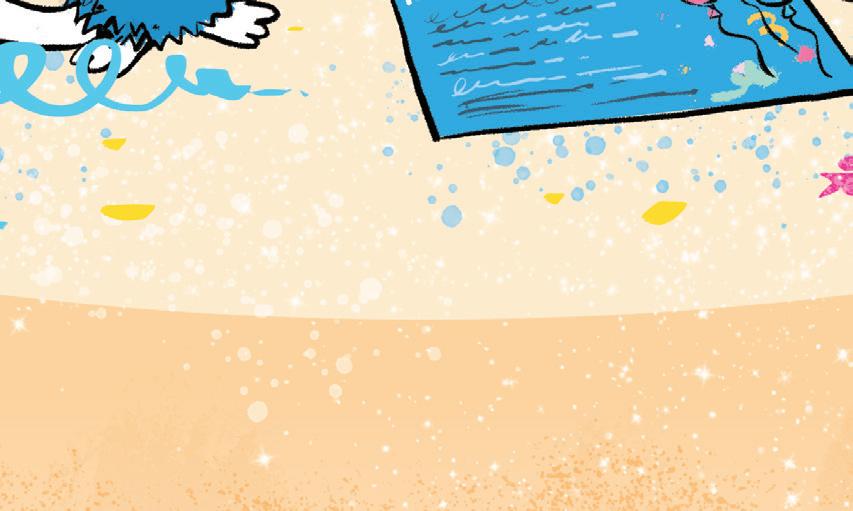

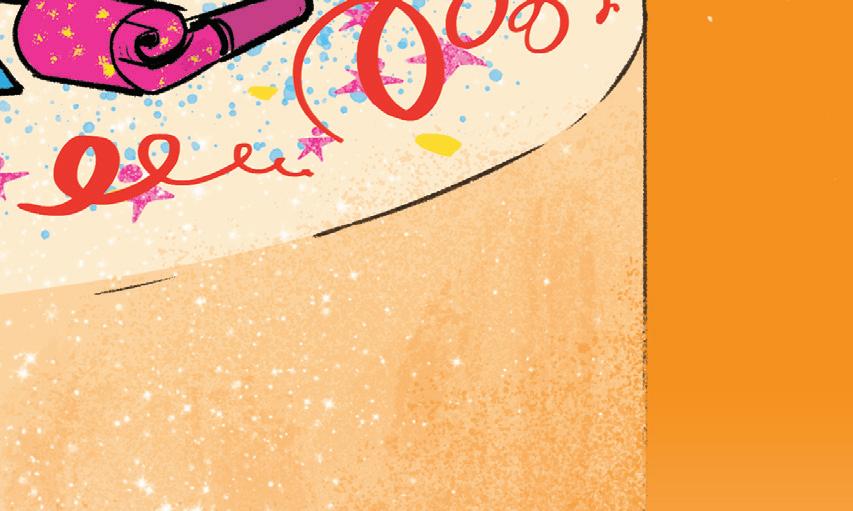

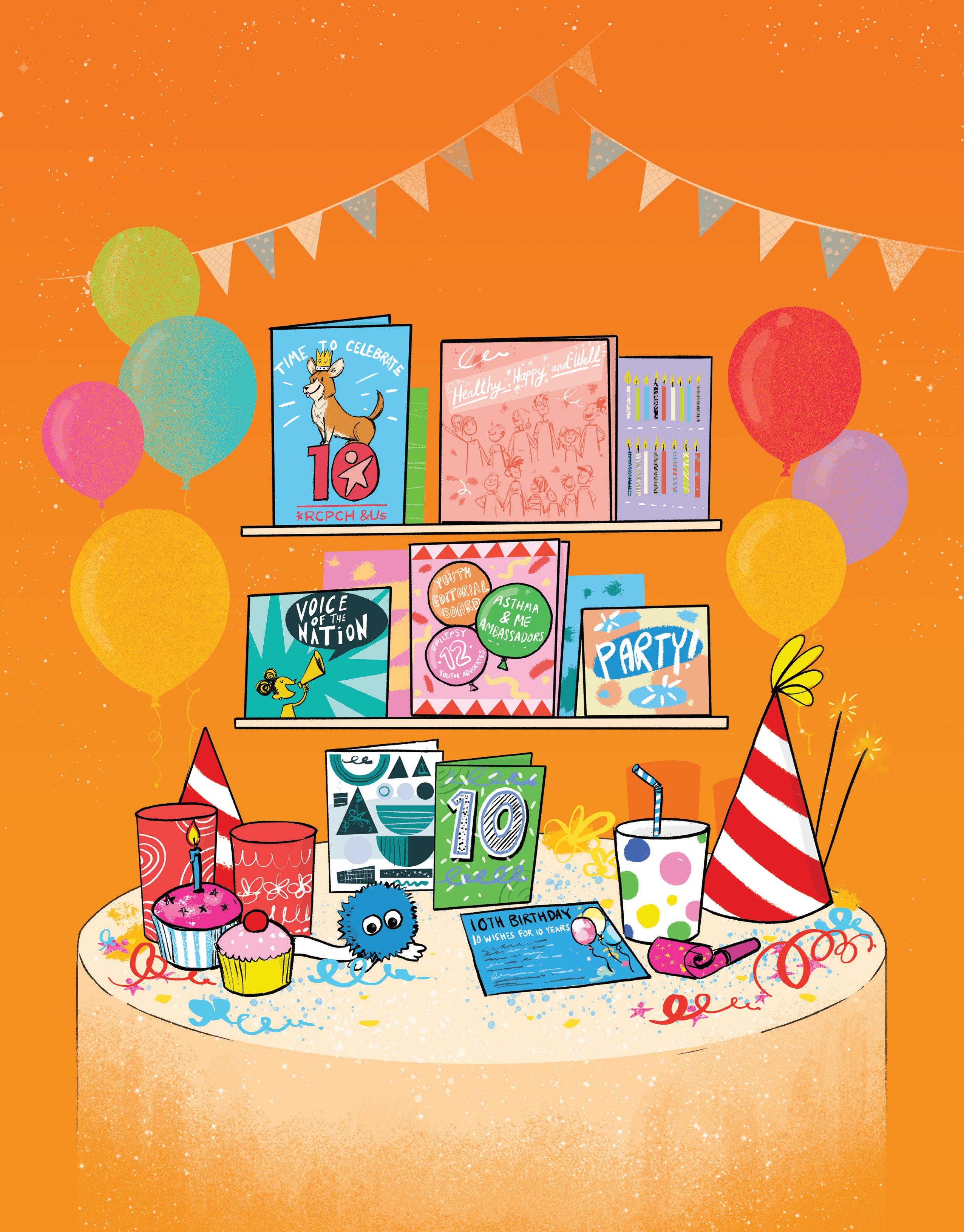
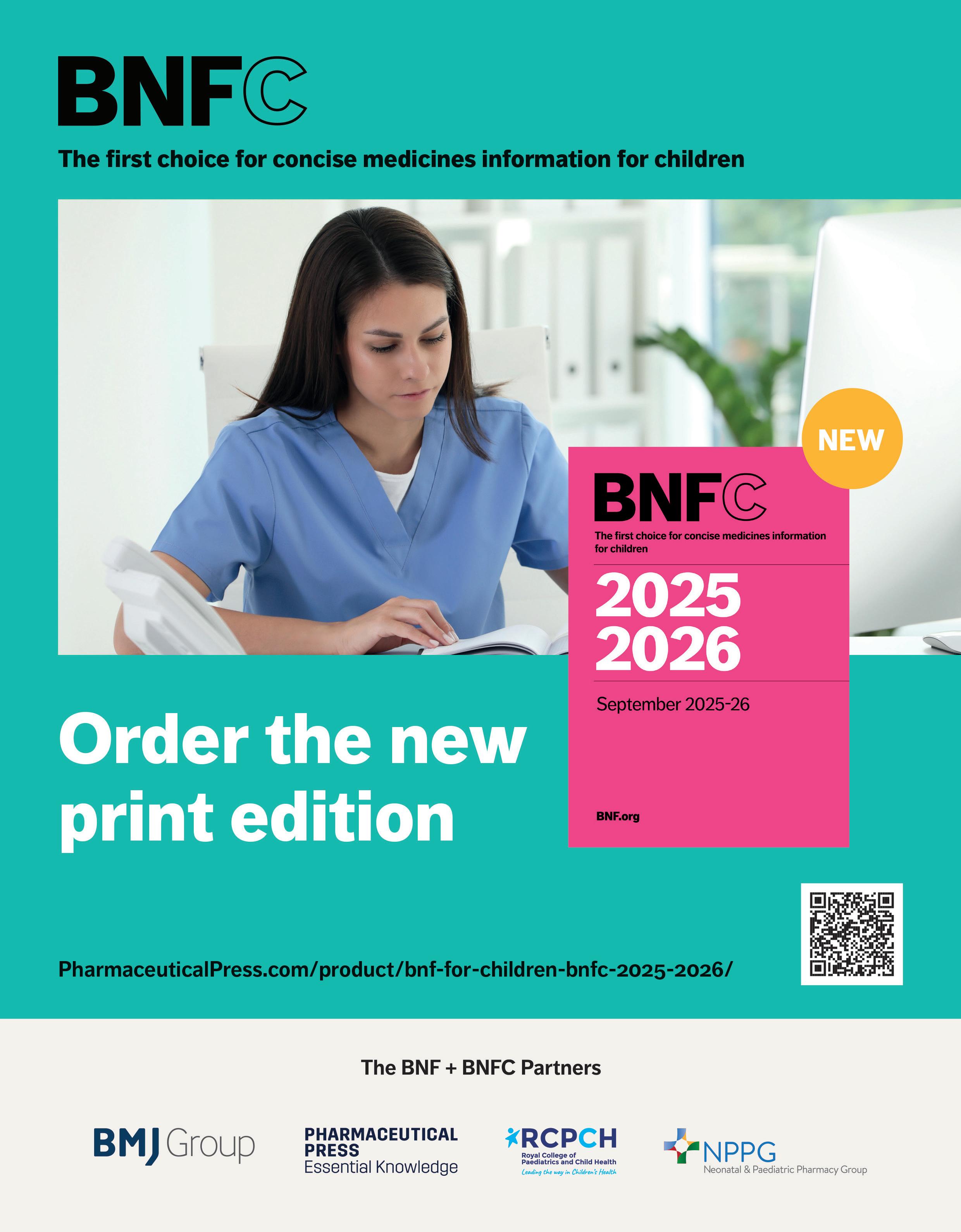













Being an editor for Milestones has always felt like a privilege but having the honour to introduce the RCPCH &Us 10th birthday special edition is the absolute cherry on top. As one of the most loveable over-achieving 10-year-olds you will ever encounter, RCPCH &Us has become integral to the RCPCH and therefore Milestones. The pullout poster roadmap truly drives this point home, showcasing a decade of vital work. We celebrate everything achieved so far and will continue to champion ongoing success. The advice Demi gives her younger self in her presidential interview exemplifies what advocacy is all about: “Keep using your voice because one day people will hear it.” Following the mantra of ‘nothing about us without us’, we have proudly adopted the approach of ‘no Milestones without RCPCH &Us’. We will continue to provide the platform for children and young people to shine; their presence is our present to all members. Happy 10th birthday!
Dr Seb Gray General Paediatric Consultant Salisbury NHS Foundation Trust

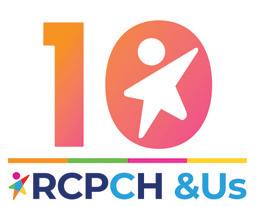
RCPCH &Us is celebrating its 10th anniversary, so as a treat, we’re taking over Milestones! From engaging primary students on air pollution to leading online projects on epilepsy and asthma, and running Challenge Days and consultations, RCPCH &Us amplifies young people’s voices. Look out for Nathaniel’s article on World Children’s Day (page 13) and reflections from parliamentary events (page 18). Tatiana shares paediatricians’ hopes for child health over the next decade (page 13), and I researched and helped design the map of RCPCH &Us history. Finally, don’t miss the interview between President Steve Turner and volunteer Demi (page 27), where you’ll discover which of them is a closet stamp collector! Catherine, aged 20
RCPCH &Us is the children, young people and family network at the College, where they come together to shape healthcare with RCPCH members and staff. RCPCH &Us volunteers are under 25, from across the UK, with a range of different experiences. Please note, while we prefer to refer to children and young people in full, in the interest of brevity, we’ve used the abbreviation ‘CYP’ at times.






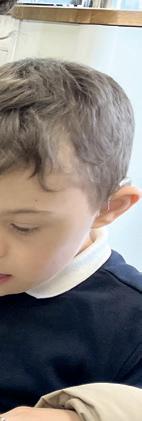
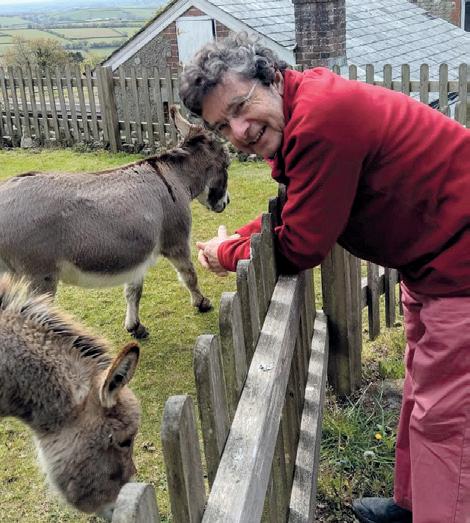
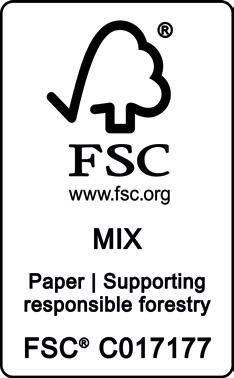
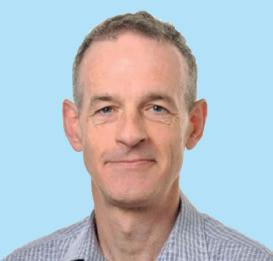
Professor Steve Turner RCPCH President
Now and then, I think it’s really important to get o the rollercoaster of life and celebrate the journey so far, reflect and plan, to ensure you’re still heading in the right direction. Anniversaries are a great opportunity to celebrate, reflect and plan, and 2026 is going to be a bumper year for our College community as we have five ‘big’ anniversaries. The cover of Milestones may have given you a heads up that RCPCH &Us is now starting its second decade. It’s also 30 years since the British Paediatric Association became the RCPCH. Our forebearers had the foresight not to become just the Royal College of Paediatrics. In becoming a College, there was the wisdom to include ‘child health’ in its name, and we continue to aspire to multidisciplinary work with children and young people at the centre.
Next year is also the 20th anniversary of Medicines for Children (MfC) and the 40th anniversary of the British Paediatric Surveillance Unit (BPSU). It’s also ‘one hundred not out’ for our journal, the Archives of Disease in Childhood (ADC). These three memberled and member-delivered institutions add to our College’s unique selling points.
“We are where we are because our members have made it possible”
I hope you share my pride at what RCPCH &Us, RCPCH, MfC, BPSU and ADC have achieved. We are where we are because our members have made it possible. You share your experience, wisdom and time in so many roles, including examiners, committees, o cers and ambassadors. Huge thanks to you all. As we get back onto the rollercoaster, I hope you share my ambition that members working in paediatrics and child health try to eclipse what has been achieved to date. When you are celebrating, reflecting and planning your milestones, please consider how the College can be part of this.
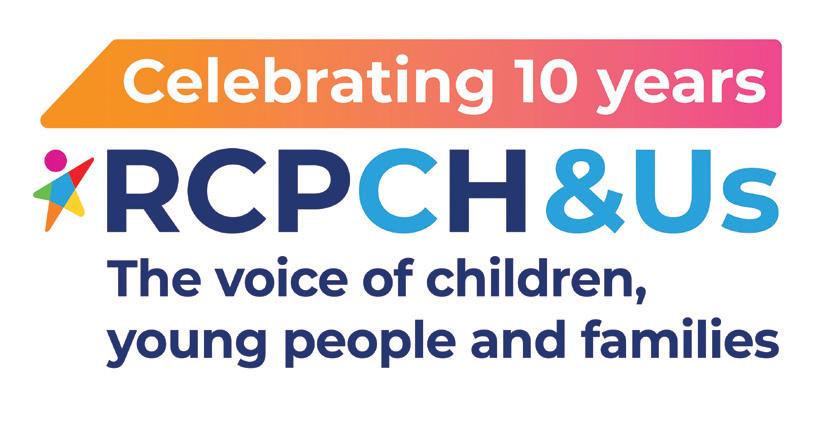
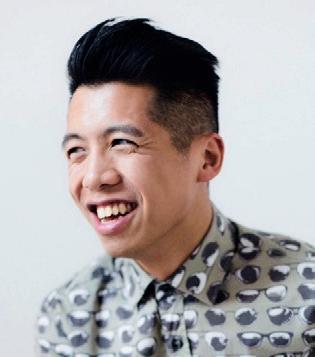
Hrutika (19) interviews Tony, whose journey into children’s health began with a commitment to empowering young people
With over a decade of experience as a qualified youth worker, Tony’s background spans open-access youth clubs, targeted work within LGBTQ+ communities and a foundation in the arts. When he first saw the opportunity at RCPCH &Us, it was the call for a professional youth worker with specialist training that caught his eye. Nearly two years on, he uses his expertise to ensure children’s voices are at the heart of paediatric healthcare. When asked about his proudest moment, it was hard for Tony to choose just one: “Learning about paediatric services from the perspective of children and families was eye-opening – understanding how different health conditions impact young lives.” He’s particularly proud of facilitating opportunities for children and young people to share their stories directly with decision-makers, whether those are MPs or doctors. He firmly believes that real change doesn’t come from one single big event but from many small shifts.
Tony’s approach is built around respect and
authenticity, and his golden rule is to listen to what they want and need. “A child once said to me, ‘I’m the boss of you!’ They’re right – they’re the leaders here.” That’s why RCPCH &Us sessions are relaxed and human, steering clear of the parent, carer or teacher role. “It’s about keeping it real, being open and honest, and treating each child or young person as they are, supporting them in their journeys.”
One phrase that’s stuck with Tony: “If the children and young people don’t turn up, nothing will happen.” It’s a powerful reminder that their voice drives the work, and without them, any change might not be fit for purpose. He believes that relationships are everything – they take time, but if you want someone to be truly open, you have to be open and engage yourself.
Tony’s role is a testament to the importance of the youth voice in healthcare –amplifying it, championing it and ensuring RCPCH &Us is a place where every child and young person feels seen, heard and respected.
Do you love Milestones? Would you like to play a part in shaping each issue?
We’re seeking volunteers to join our Editorial Committee. For more information, visit rcpch.ac.uk/volunteering/opportunities
&Us 10th birthday celebrations, Toby (20) welcomed her to the College. He shares highlights from the visit
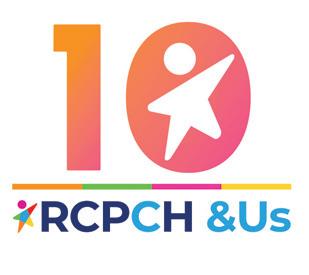
The celebration event included a tour around some of our RCPCH &Us projects, including showcasing Asthma &Me Ambassadors, our Experts by Experience parent/carers, Epilepsy12 Youth Advocates, National Paediatric Diabetes Audit Youth Communications Group, Voice of the Nation team and, of course, the Youth Editorial Board.
Her Royal Highness asked a wide range of insightful questions, which challenged all of us to dive deeper into and highlight all the amazing work we’ve done in each of the areas on display. All of the volunteers, including myself, were very grateful for the opportunity to meet The Princess Royal, and many expressed that she was particularly friendly and interested in everything she was shown.
After the tour, speeches were given by Assistant Registrar Dr Bhanu Williams; Grace, an RCPCH &Us volunteer; and The Princess Royal; with video messages from College President Professor Steve Turner and Chief Executive Robert Okunnu.
The College turns 30 in 2026, with various celebrations planned – including at our annual conference. Look out for further announcements in the new year.
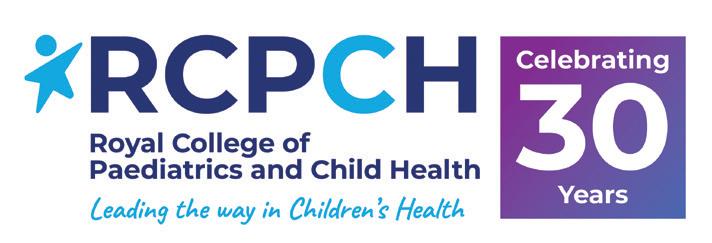
Grace’s powerful beginning really resonated with us all: “I first got involved with RCPCH &Us when I was a teenager trying to find a place to belong. I was looking for other young people with health conditions who are like me, trying to navigate the world without feeling alone and invisible. Back then, I didn’t know how powerful it could be to find a community, and that’s exactly what I found through RCPCH &Us. Not only did I find people who understood and related to me, I found my voice and learned how to use it, also.”
As the Master of Ceremonies for the speeches, I had a small role in introducing and closing each of the speeches. This is something I’m very grateful I got to do, and I would like to thank the RCPCH &Us staff who supported me with scriptwriting and preparations on the day. Our young volunteers who attended had lots to say about the event, too. Haania was “inspired because you could see The Princess Royal took interest in our work”, while volunteer Catherine shared a similar sentiment, remarking, “she was so passionate about our cause”.
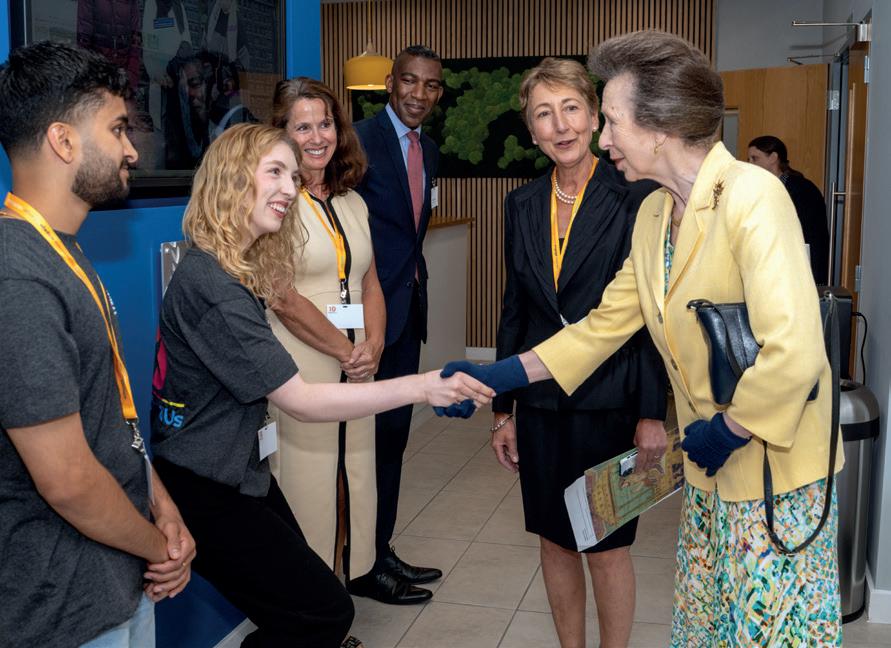
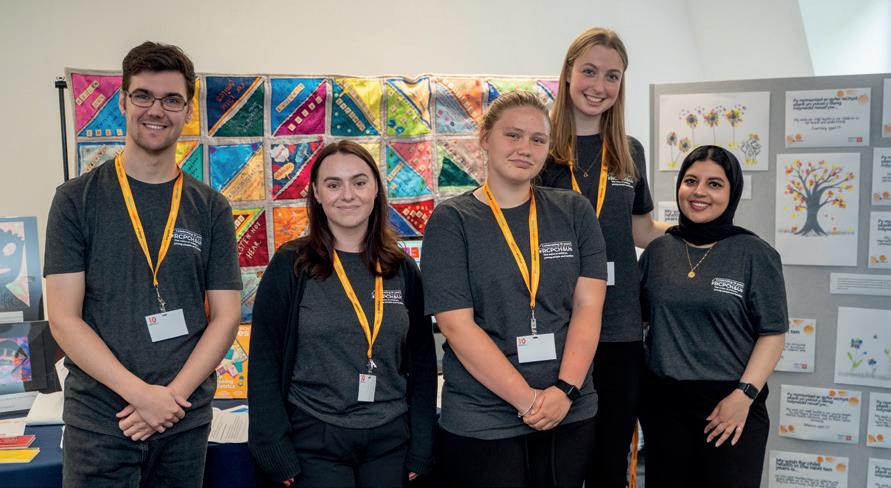
Our 10th birthday royal event celebration was a massive success, and we would like to thank The Princess Royal for coming to the College for this special visit and for continuing to be the College’s Royal Patron.
12 May 2026, Birmingham
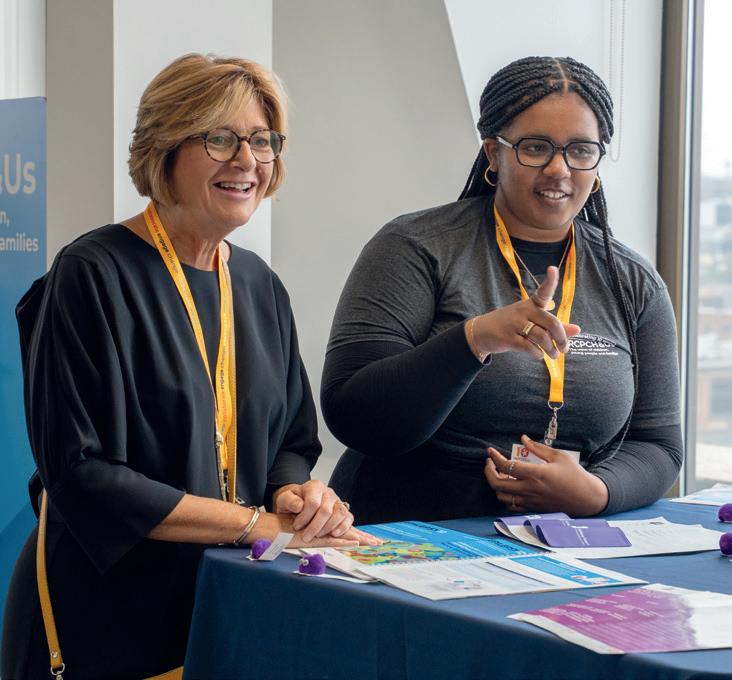
We’re excited to offer a oneday youth conference within the main RCPCH Conference 2026, designed to directly explore with children and young people what keeps them happy, healthy and well.
More details to follow! Stay tuned to rcpch.us for expressions of interest, which open in January 2026.
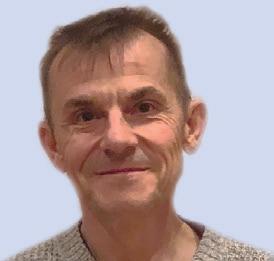
Nick Brown Archives of Disease in Childhood Editor-in-Chief
@ADC_BMJ
When I put my Milestones thoughts together, the themes generally focus on recent and upcoming events – I guess a form of pulsecheck trajectory. I’m not going to break this pattern completely, but I feel compelled to (modestly) announce an anniversary: a 100th birthday. It’s the vintage at which, in the
UK, one would expect to receive, as a new centenarian, a royal telegram. In this case, rather than for a person, the candles are for a journal: Archives of Disease in Childhood, of course.
In January, it will be exactly a century since the first issue (adc.bmj.co m/content/1/6) of ADC was posted. Then, as I’d like to think now, the themes were topical: Group A streptococcal infection, Encephalitis lethargica and intussusception. And though paediatrics had yet to emerge from its long gestation in the adult medicine family, it was clearly, even
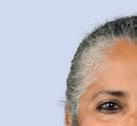
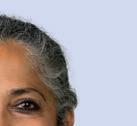
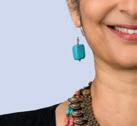
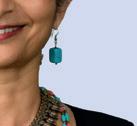
Shanti Raman
BMJ Paediatrics Open Editor-inChief
@BMJ_PO
Having reached some maturity in 2025 as a highquality journal dedicated to child health, we’ve updated our description of the aims and scope of the journal on the website: BMJ Paediatrics Open is an open-access journal dedicated to publishing original research, clinical reviews, study protocols and viewpoints that deal with any aspect of child health. We also include a Young Voices section that solicits experience and guidance from young people engaging with healthcare. BMJ Paediatrics Open is cognisant of the under-representation of
research and experience from marginalised communities, especially from countries of the Global South; thus, we actively solicit papers that advocate for or will improve child health outcomes from these contexts.
The targeted topic collections have continued to provide us with a range and breadth of publications that we did not have before. The Disability and development in early childhood collection now has nine published papers and several awaiting finalisation. A particularly important review paper is 50 years of a nation-wide child development programme in India by Vandana Prasad (2 September 2025).
The following topic collections are currently open: Paediatric and child healthcare in India –opportunities and challenges and
then, entirely different. To mark the event, we (our convenor Robert Scot-Jupp must take the plaudits) have put together a series commemorating our past, both in terms of the science but also personal recollections – the way things were (any idea how recently parents were barred from wards?) and how our specialty has evolved, sociologically and philosophically. So, it’s even more of a privilege to be holding the baton in this exhilarating relay, one which I can’t wait for you to enjoy as the new year chimes in.
We launched Progress+, our two-level paediatric specialty curriculum, almost two years ago and are currently reviewing the programme of assessment to ensure that those undertaken in the workplace and our examinations are fair, fit for purpose and sustainable. Visit rcpch.ac.uk/assessment-review for the latest information, where you’ll find links to Dr Cathryn Chadwick’s (VP for Training and Assessment) explanation of the rationale behind the review and our Trainee Committee’s update on the pilot phase, as well as FAQs.
The burden of neurodevelopmental disorders in China
Our social media editors continue to work hard to push out the content that we publish via LinkedIn, Facebook and X. In particular, our LinkedIn account regularly features BMJ Paediatrics Open content –check it out and follow: linkedin. com/showcase/paediatrics-andchild-health-at-bmj
Please sign up for e-alerts if you have not done so already (bmjpaedsopen.bmj.com), and remember, as RCPCH members, you benefit from a 25% article processing charge (APC) discount when you submit to BMJPO. If you submit anything for a topic collection, you also receive a 25% APC discount, and reviewers receive a 25% discount if they submit a paper within 12 months.
A day in the life…
Turn to page 30 for A day in the life of our new Chair of the RCPCH Trainee Committee, Dr Josh Hodgson
The competency framework for safeguarding children and children in care has just been completed
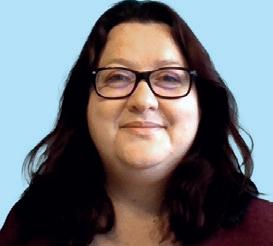
Dr Vicki Walker Consultant
Paediatrician
Sherwood Forest Hospitals NHS Foundation Trust
RCPCH Assistant
Officer for Child Protection
In professional and educational settings, competencies are often defined to set standards for performance, guide training and development, and assess an individual’s suitability for specific roles or responsibilities. Safeguarding must be a fundamental competence for all healthcare staff, applicable across all areas, job roles and age groups. A competency framework alongside legislation across the four nations supports mandatory training and revalidation requirements for professionals. But how does that work? And who decides the content for these documents?
The project updating the competency framework for safeguarding children and children in care was completed in October 2025 and gives an insight into the process for achieving a national intercollegiate guidance document. The project timeline spanned from November 2022 to October 2025, with phases including stakeholder engagement, drafting, consultation and final review. The rationale behind the project plan was that it should:
Apply to all four nations of the UK
Ensure equality, diversity and inclusion
Consider special educational needs and disabilities (SEND) and neurodiversity
Focus on rewriting core competencies, inclusive of knowledge and skills, without researching new content
Incorporate transitional and contextual safeguarding
Include the voice of children and young people (CYP)
Aim to revise, update and combine existing intercollegiate documents into a new online resource that’s more accessible and dynamic
Have an adult learning-oriented approach
Project consultation period
The medical and surgical Royal Colleges, several safeguarding and children in care networks, healthcare groups/professional bodies and some third sector organisation experts (eg CoramBAAF) were asked to be part of the consultation, with the aim of:
Actively seeking feedback from various stakeholders on a proposed document’s content and structure
Allowing those affected or interested to review, comment and suggest improvements
Ensuring the draft reflects diverse perspectives, addresses key issues and is fit for purpose
Identifying potential gaps, clarifying ambiguities and enhancing the overall quality and acceptance of the final version
The hundreds of comments were reviewed by ‘theming’ against each section of the document and categorising feedback into factual accuracy or omissions, and comments related to values, expectations or presentation. The steering group reviewed and made changes to the draft, followed by a second consultation with subject matter experts, whose specialist input ensured the content was accurate, relevant and practical.
Delivering the framework
Direct quotes from CYP were included to illustrate the tangible impact that safeguarding competencies can have on individuals’ lives. It is a way to reinforce, especially in training contexts, the significance of professionals’ actions. The intention is for these real-life accounts to help embed the understanding that what healthcare staff and clinicians do truly matters.
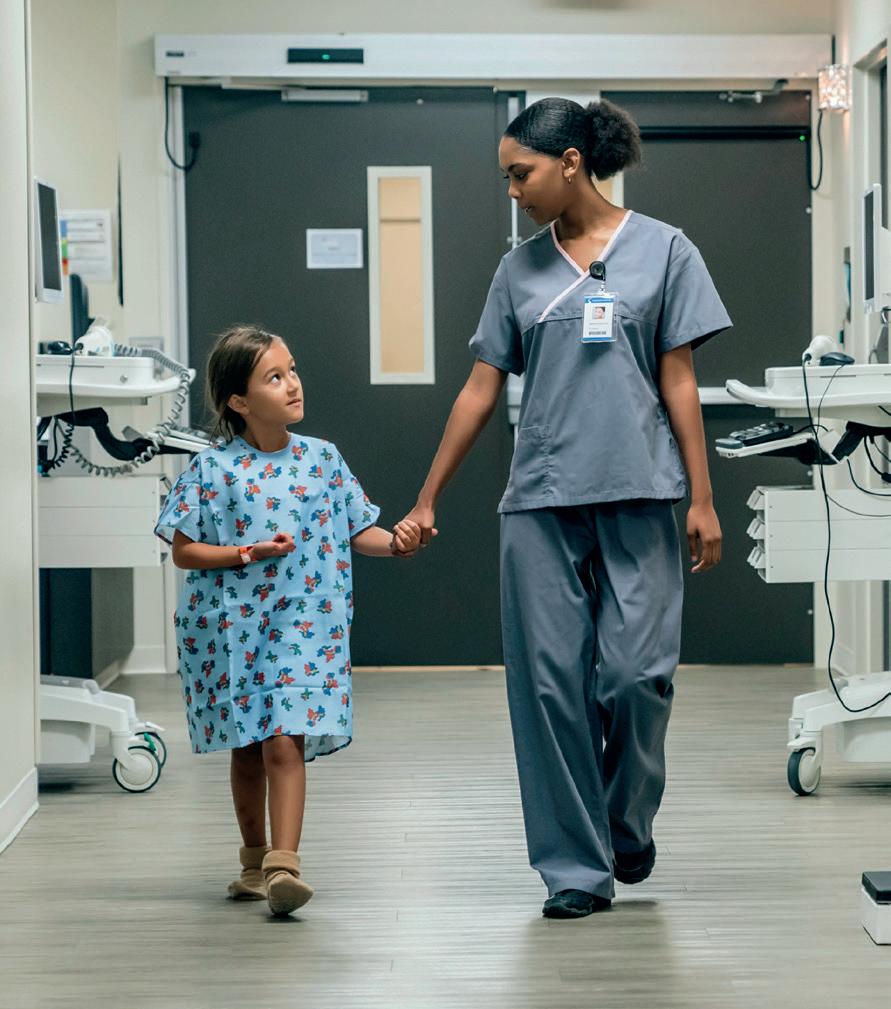
It’s essential to develop a robust communication and publication strategy using a sustained approach involving articles, presentations and sharing through professional networks. This ongoing visibility is key to embedding the competency framework within healthcare system training and practice. Projects like this often uncover gaps where there is a need for further research and help to spark ideas for new projects; while recommending a clear timeline for the next review helps address issues in future versions. The competency framework was thoroughly reviewed and updated with input from many professionals who are advocates for CYP. This collaboration supports the framework’s integrity and relevance, and should give us all confidence in the content.
Find out more about the safeguarding intercollegiate project: child-healthsafeguarding.rcpch.ac.uk
As the British Paediatric Surveillance Unit (BPSU) approaches its 40th anniversary, it’s time to remind paediatricians of their pivotal role in the surveillance of rare diseases and conditions
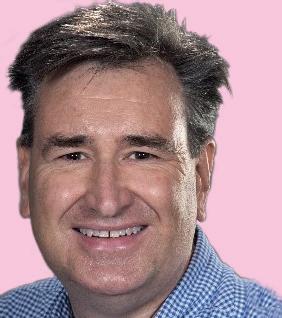
Dr Peter Davis
Consultant
Paediatric Intensivist Bristol Royal Hospital for Children
Chair of BPSU Scientific Committee
BPSU studies have resulted in a series of peer-reviewed papers and research presentations, each translating clinicians’ monthly reporting and completed questionnaires into evidence that can improve or even save the lives of children, advance services and drive policy. Every published paper represents thousands of clinicians taking a minute each month to complete their ‘orange card’ and, in doing so, making world-leading research possible.
In just the first nine months of 2025, BPSU data has underpinned five important new publications, each shedding light on a different aspect of child health. Highlights include: Herpes simplex virus in infants under
90 days – a nationwide study revealing the burden and clinical features of this serious infection
Variant Creutzfeldt-Jakob Disease (vCJD) – 27 years of prospective surveillance captured in a landmark update from the PIND study
Severe accidental poisonings –national data identifying patterns and prevention priorities
Near-fatal asthma – first UK and Ireland surveillance findings presented at the European Respiratory Society Congress
Acute rheumatic fever – recent UK and Ireland surveillance highlights ongoing cases
These papers and presentations reflect the diverse range of studies and conditions that the BPSU supports, demonstrating the breadth and potential impact of BPSU surveillance. And these studies are only possible with the participation of paediatricians completing their monthly
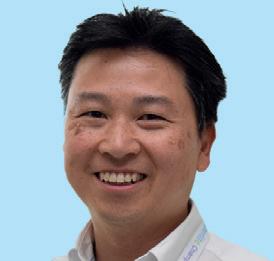
Dr Yincent Tse
Consultant
Paediatric
Nephrologist
Great North Children’s Hospital, Newcastle Upon Tyne
Co-chair RCPCHNPPG Medicines Committee
Every week, dozens of patient safety reports, innovations or helpful guidelines are published. Some of this information may be very useful, especially if it can be directly actioned on the ground; however, sifting through it all can be tricky.
In response, we launched the first bi-monthly RCPCH Safety eBulletin in December 2024 and, as this year draws to a close, the six editions
have reached nearly 20,000 members. The bulletin would not be possible without the amazing support of College sta – Jonathan Bamber, Emma Grindrod and Emma Vittery – and the editorial team ensures each edition is timely, succinct and relevant, with specially commissioned spotlight blogs focusing on major topics such as PEWS, blood transfusions and trainees’ experience with safety.
It’s aimed at a UK audience, but feedback from members globally has been positive. Some editions have been shared in governance meetings; others have been used to learn about safety in training portfolios. Other Royal Colleges have shown an interest in creating similar bulletins.
‘orange card’ and remembering that reporting having not seen a case is just as important as confirming that you have.
But the system only works if the network remains active. By signing up to the BPSU, staying engaged, updating your email and encouraging colleagues to report, you are helping to ensure that rare disease surveillance and research lead to a better understanding of conditions and potentially improved care for affected children.
Are you a newly qualified consultant?
Scan the code, right, to sign up for BPSU e-cards so that your reports count.
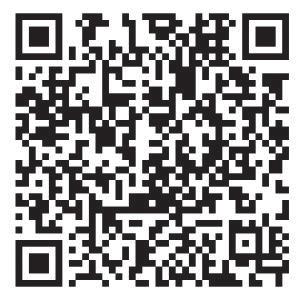
Already report? Great. However, moving from trust email addresses to nhs.net email addresses can mean lost data. Check your details by emailing bpsu@rcpch.ac.uk
This is all part of a big vision for RCPCH to lead the way in paediatric patient safety. Much of what we do in safety is extrapolated from adults or thought to be useful without an evidence base. We are partnering with SafetyNet, a network of the six NIHR Patient Safety Research Collaborations, to create a worldclass evidence base for paediatric safety. We will be needing you, our members, to be part of this exciting collaboration.
The Safety eBulletin is available to all RCPCH members: safety. rcpch.ac.uk/safety-ebulletin Encourage your teams to join today: rcpch.ac.uk/membership
Submissions for regional winners for the 2026 national Paediatric Awards For Training Achievements (PAFTA) opened on 2 November 2025. Key changes have been introduced this year to improve clarity and consistency:
Regions must answer two questions and provide supporting evidence about their winners. Award categories have been updated to align with Progress+, meaning Junior Trainee is now Core Trainee and Senior Trainee becomes Specialty Trainee, while Educational Supervisor remains unchanged.
Submissions close on 2 February 2026 and winners will be announced at the RCPCH Conference on 11 May 2026. For further information, contact awards@rcpch.ac.uk or refer to our guidance at rcpch.ac.uk/PAFTA
Delivering high-quality training and coaching for healthcare professionals engaging with children and young people. From the basics of how to get a conversation started to exploring safer working practices and thinking about how to ethically involve children and young people in your research.
To develop your skills and knowledge to effectively and confidently involve children and young people in improving your health services, visit: rcpch.ac.uk/engagement-academy

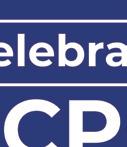
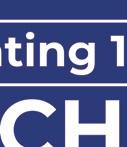



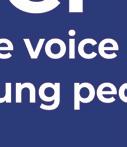
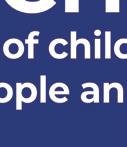
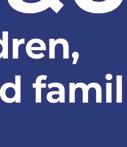

Honorary Fellowship
Help us honour those shaping the future of child health with this prestigious award that recognises individuals – paediatricians and nonclinicians alike – who have made outstanding contributions to paediatrics and child health through research, education, clinical service or leadership. Nominations must be submitted by RCPCH members and remain confidential from the nominee. Honorary Fellows enjoy exclusive benefits, including event invitations, CPD tools and lifelong membership.
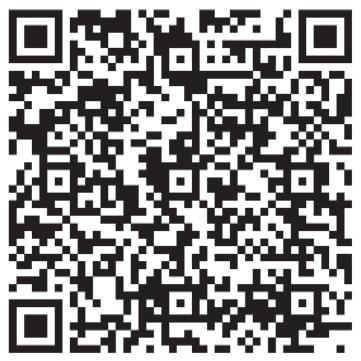
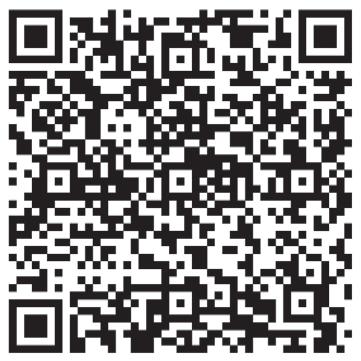
The College’s highest honour, this is awarded for exceptional contributions to paediatrics and child health. Open to professionals across the UK and Commonwealth, it recognises achievements in clinical or social paediatrics, public health, epidemiolo and more. Nominations must be proposed and seconded by RCPCH members and are reviewed by the Nominations Committee. Winners are celebrated at the RCPCH Conference and receive a volume of Sir James Spence’s collected writings.
RCPCH Members’ Award
Whether through clinical care, research, education or service delivery, this award celebrates College members who have undertaken outstanding work for child health and the College’s mission, but may not qualify for other honours. Open to all voting members, nominations can be for individuals or joint e orts and must be submitted confidentially by fellow members. The award is decided by Council, following recommendations from the Nominations Committee.
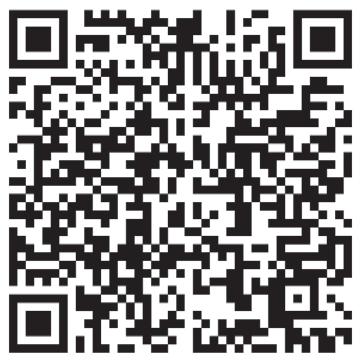
These awards will be presented at the RCPCH Conference in 2027. For further information on each award, please contact Charlotte Hughes via awards@rcpch.ac.uk
Don’t miss the rest of our 10-year anniversary takeover! Look out for our birthday logo and colours throughout this issue for more articles from children and young people. rcpch.us
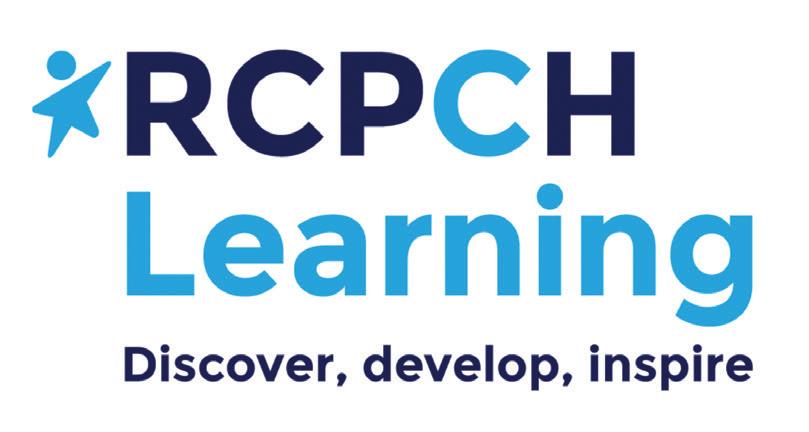
Find out more at learning.rcpch.ac.uk
Assessment of jaundice in Black, Asian and ethnic minority babies
Recognising and managing jaundice in babies with darker skin tones.
Management of heterozygous familial hypercholesterolaemia
Information for paediatricians and healthcare professionals about FH.
Genomics in paediatrics 2025
Explore the latest advancements and how they are shaping the future of child health.
Detecting cleft palate early
A short learning resource that supports clinicians to identify cleft palate early.
RCPCH Grand Round webinars 2025-26
Our fortnightly, free webinars replicate the ‘Grand Round’ that takes place in many hospitals. Whether you’re a consultant, trainee, nurse or allied health professional, these are designed to improve your practice and broaden your perspective. Register at: rcpch.ac.uk/grand-round
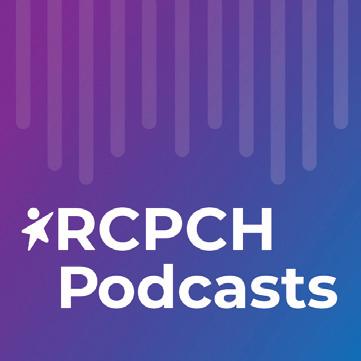
Leading the Way
26 November 2025 (online), 2 February 2026 (Liverpool)
Effective educational supervision
Explore the fundamentals of educational supervision and receive updates on the RCPCH Progress+ curriculum and RCPCH assessments.
9 December 2025
How to manage: Common cardiac problems (online)
Develop an understanding of cardiac problems frequently encountered by clinicians working with children.
16 December 2025
How to manage: Diabetes in children (online)
Develop a clinical framework for the diagnosis and management of CYP with type 1 and type 2 diabetes.
21 January 2026
How to manage: Adolescent health (online)
Understand the issues facing young people as they develop and learn practical tips on how to engage and work with adolescents.
4 and 25 March 2026
Child protection: From examination to court –England/Wales (Level 3) (blended)
Through open conversations with inspiring clinicians, healthcare professionals and thought leaders, we discuss the challenges, successes and key moments that shape their leadership in paediatrics and child health.
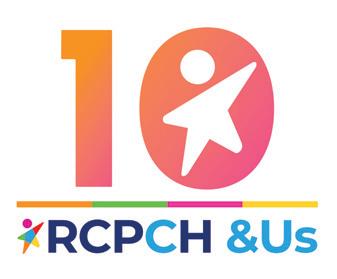
Learn more about your responsibilities, from gathering the evidence base for signs observed in assessment and providing a medical perspective in multi-agency meetings to presenting as a professional witness in family, criminal or civil proceedings.
5 March 2026
Statement and report writing – Northern Ireland (Level 3) (online)
Learn how to write statements and reports that document the valuable information needed for effective investigation in child protection cases.
9 March 2026
Safeguarding in the digital world (Level 3) (online)
Delve into the potential benefits and harms of the online world for CYP, and how you can best support them to use this environment well.
11 March 2026
How to manage: Childhood poverty (online)
Explore the causes and consequences of child poverty, as well as the link between poverty and health inequalities.
The Paeds Round
Listen to real-world advice and guidance on how to manage a range of clinical topics and much more on education, training and working in paediatrics.
One delegate reflects on the urgent challenges in child health, the role of youth in global policy and the critical need to turn words into action
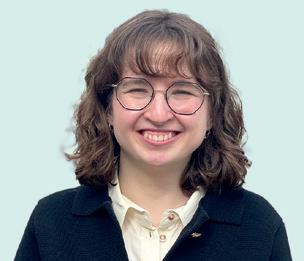
Paediatrics, Resident ST2
Great Ormond Street Hospital
Lead for the RCPCH TREES
Project @cinarervanur
Irecently had an incredible opportunity to attend the 78th World Health Assembly (WHA) in Geneva as part of a delegation of young doctors from around the world. Advocating for child health at a global level has always been close to my heart, and it’s the reason I became a paediatrician. Every child deserves equitable access to quality healthcare and a say in shaping the policies that a ect their future. This is why I’ve engaged in global health policy advocacy since medical school through organisations such as the UN and the World Health Organization (WHO). The WHA is essentially where WHO member states get together to make decisions about global health policy. While there’s been progress in recent years, children’s voices and needs are often still overlooked, and there’s more work to be done to ensure young people have a seat at the table.
Urgent global child health issues
One area of focus was on how aid funding cuts will seriously impact maternal and child health programmes, particularly as previous reductions have already led to fewer children receiving life-saving immunisations and essential maternal health services, significantly risking increased child morbidity and mortality. There were also discussions
about specific challenges facing CYP, especially medication shortages and gaps in paediatric drug development. It was striking to learn that it can take up to 25 years to bring a paediatric medicine to market, and the root causes are complex. Antimicrobial resistance (AMR) was another huge topic with calls for all partners to work together towards better antibiotic use, improved tracking systems and stronger patient advocacy. It was pleasing to hear patient voices at some of the sessions; they shared powerful personal stories and emphasised real-life challenges such as delayed diagnosis, treatment failures and the emotional impact of antibiotic-resistant infections. Climate change, non-communicable diseases and digital health were also major themes. Discussions focused on creating resilient healthcare systems ready to tackle growing health challenges caused by extreme weather events, food insecurity and increased prevalence of chronic conditions among children and adolescents. Digital innovations, particularly the integration of AI tools for diagnosing diseases such as tuberculosis, were presented as critical solutions to improve healthcare access and e ciency, particularly in resourcelimited settings.
As a young paediatrician, having a place at the WHA was surreal and transformative. I had the pleasure of connecting with colleagues from around the world, talking directly with senior policymakers and seeing firsthand how health diplomacy works. Most
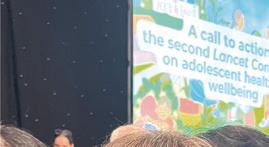
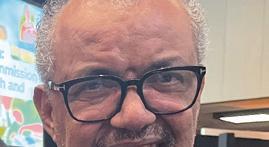
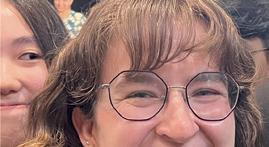
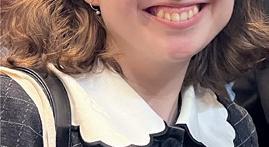
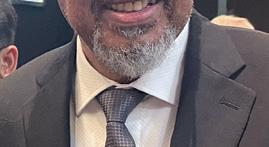





3 messages from WHA
1 Partnerships need to work
A successful partnership is one in which all parties are accountable to each other and that finds solutions that work locally and has a clear action plan for funding. For example, the Uganda-UK partnership has trained and supported over 13,000 healthcare workers to strengthen Uganda’s capacity to respond effectively to local health needs.
2
CYP are key to health and development
Children and young people shouldn’t just watch from the sidelines – they can and are actively participating and coming up with strong ideas for healthcare through channels such as the WHO Youth Council and Youth Delegate Program.
3
We must act now to avoid losing the progress we’ve made Covid-19, climate change, conflict and funding cuts threaten to undo years of hard work in maternal, child and adolescent health. We need to protect essential services, figure out what cannot be interrupted and ensure international agreements are implemented on a national level, such as the WHO’s Pandemic Agreement.
importantly, it reminded me why I’m so passionate about connecting clinical practice, research and policymaking. I’m now more motivated than ever to fight for children’s health globally and help shape a healthier future for all children around the world.
How the Mersey Paediatric Trainee Committee brought a conference to life at Alder Hey Children’s Hospital, Liverpool
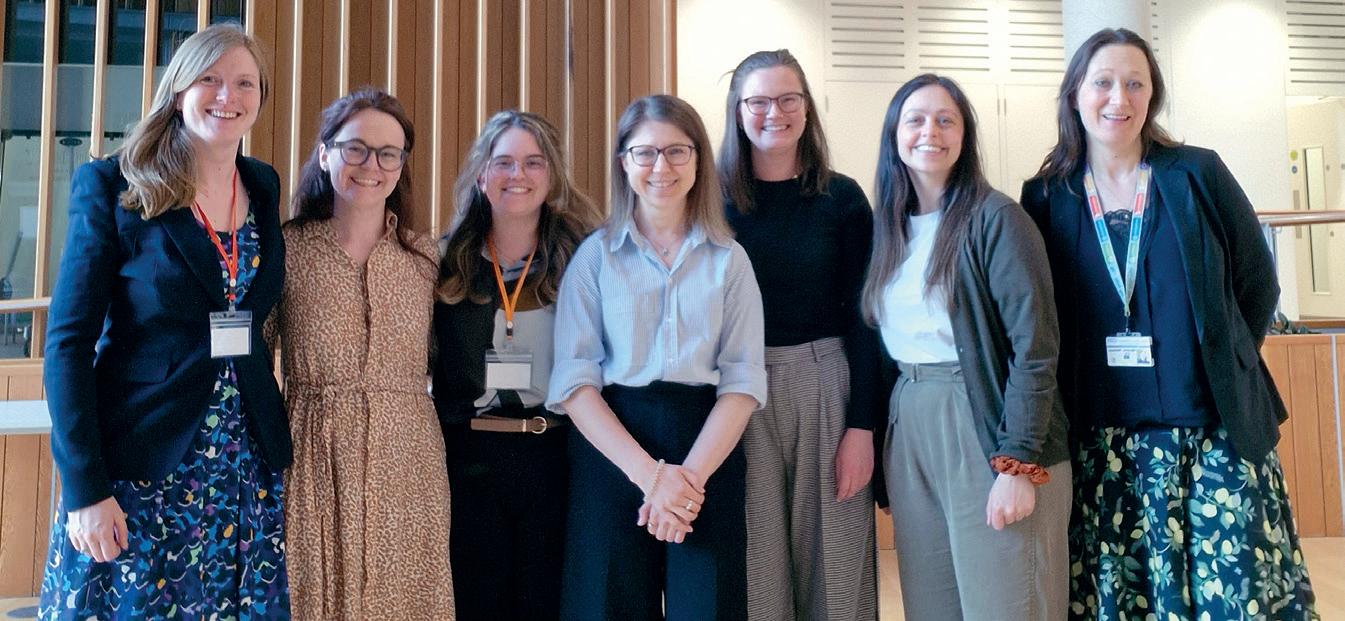
On 7 May 2025 , a group of passionate trainees turned their vision into reality, hosting the region’s first-ever trainee conference. Entirely trainee-led and fuelled by determination (and many evening Teams calls), this one-day event was a bold response to the growing need for opportunities for healthcare professionals to connect, share and inspire.
Across the region, there’s a real hunger for opportunities that put trainees front and centre – to present their work, learn from peers and network beyond their hospitals. We saw the gap and decided to fill it. Our seven-strong team came together with the shared aim of creating something meaningful. With support from the North West School of Paediatrics and a modest £10 ticket fee, we pulled together everything, from the programme to the posters and logos.
Choosing the content
We selected broad topics to inspire healthcare professionals from a range of specialties working in child health. We built the day around four key themes: education and training; technology and data; global and public health; and
improving patient care. For each, we invited an inspiring keynote speaker, including Dr Guy Makin, Consultant Paediatric Oncologist and Head of School, Professor Melissa Gladstone, Community Paediatrician and a global leader in early childhood development, Dr Gerri Sefton, Consultant Nurse for Critical Care and Co-chief Investigator on the DETECT Study, and Dr Lisa Howell, Consultant Paediatric Oncologist and Lead Cancer Clinician for Alder Hey. We also selected trainee oral presentations, which brought fresh energy and practical ideas.
An interactive panel discussion with Dr Louise Oni, an international expert in paediatric nephrology, and Dr Darren Gates, Consultant Paediatric Intensivist and Clinical Lead for AI at Alder Hey, explored how digital tools are shaping the future of child health.
The ‘Legend Slot’ closed the day with an inspiring and thoughtful talk from Professor Colin Morgan, which reflected on his career, his long tenure as Mersey Head of School and the work he has done
with RCPCH to strengthen the training of paediatric advanced practitioners.
Conference highlights
The trainee presentations and poster showcase were a real highlight – giving attendees a platform to share audits, QI projects and research in a relaxed but lively environment. Many presenters spoke publicly for the first time and received constructive feedback on work in progress – the creativity and commitment on display blew us away. Prizes were awarded for the best posters and presentations, bringing well-deserved recognition and a friendly sense of competition.
Most of all, this event proved what’s possible when trainees lead. It showed that with the right support and shared vision, we can create spaces that are as empowering as they are educational.
We’re planning next year’s conference for 21 May 2026, and we hope to see you there
Start early and plan flexibly, as things are always changing
Find a central and easily accessible venue
Give trainees the stage – they will rise to it! A trainee conference provides a fantastic opportunity for residents to present projects for the first time
Build space for informal connections, because this matters just as much as the talks
Use social media. Our Instagram @merseypaediatricconference helped spread the word and build buzz
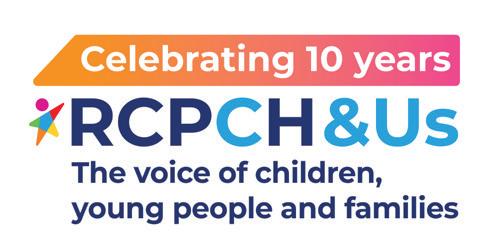
What started as an interactive stand at the RCPCH Conference is now an inspiring patchwork quilt, stitched with paediatricians’ wishes for child health in the next 10 years
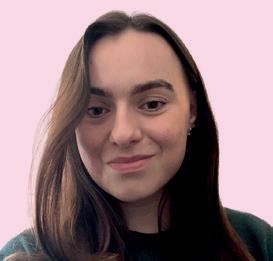
Tatiana, aged 22
As part of the RCPCH &Us 10th birthday celebrations, we designed our stand in Glasgow to look back on the past decade and ahead to the future. We wanted to create a party atmosphere and it wouldn’t be a party without bunting!
Having been involved with the Building Artworks project since its start in 2024, I have seen how e ective art can be at sparking conversation, so we invited doctors and allied health professionals visiting the stand to create their own piece of bunting illustrating their wishes for the next 10 years in children’s health.
The response was inspiring. Many
stayed for 20 minutes or more, joining us in arts and crafts while talking with young people and parent carers. These conversations were as valuable as the messages. We heard about doctors carrying teddies to reassure children and others who keep up with the latest TV shows to connect with teens.
Many told us of the creative ways they already bring empathy, listening and enjoyment into their work. Some key themes made their way onto the bunting: safety, equality and, above all, listening to and including the child or young person. Huge strides have been made, but the activity reminded us that there is always more to do.
After conference, the bunting was carefully stitched together to make a patchwork quilt, which now hangs in


Nathaniel, aged 15
On World Children’s Day, countries around the globe celebrate and renew their focus and education on the UN Convention on the Rights of the Child (UNCRC). These rights are vital in ensuring children grow up safe, healthy and supported. We at RCPCH &Us must recognise, work and advocate for child rights, and we place several key rights at the core of what we do, to make sure that other children and young people know they’re essential to a happy and healthy upbringing.
The UNCRC is also important in ensuring that we remind doctors and
the wider teams to involve children in paediatric processes, as they can give ideas based on what they think is needed.
This is a timely reminder of the importance of children’s rights in the work of RCPCH &Us and across the wider College. The UNCRC sets out 54 rights, or ‘Articles’. Here are the key ones that I believe support RCPCH &Us to recognise and advocate for children’s rights.
Article 3: Best interests of the child Children should be thought of first when it comes to decision-making, as the choices parents and the government make directly a ect them.
Article 12: Right to express views Children have the right to freely share their views on matters that directly a ect them. It also says that adults should take these views seriously.
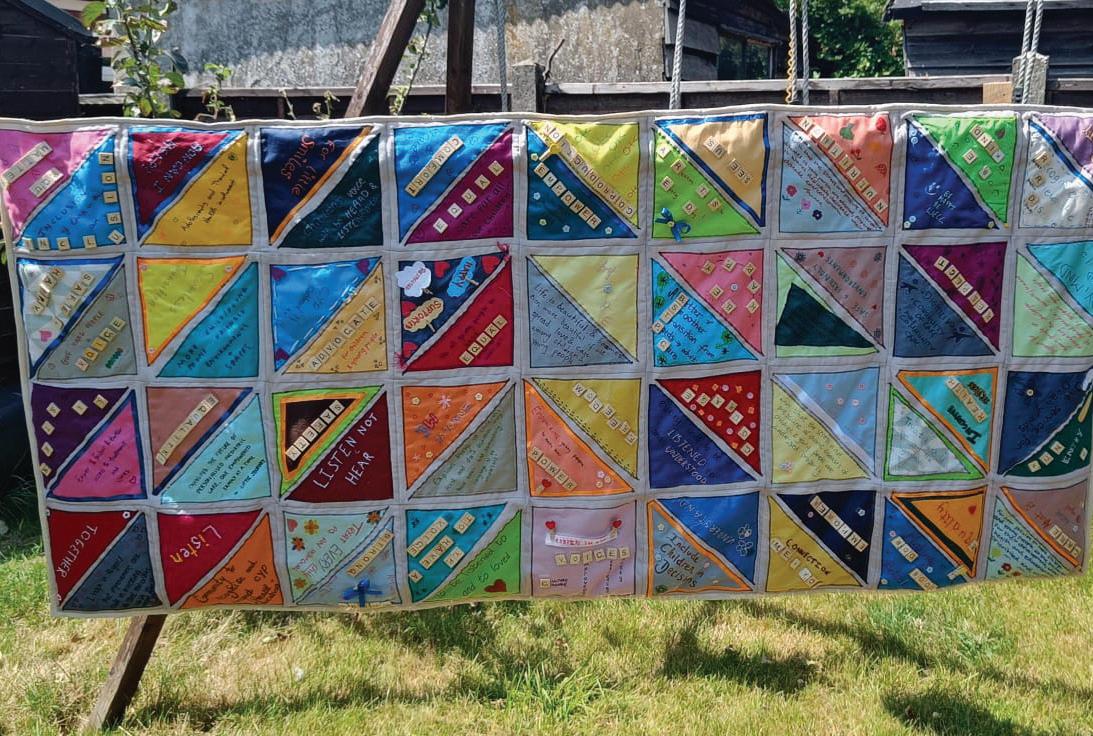


the College. I first saw it during a visit by Her Royal Highness The Princess Royal, and showing it to her was a very special moment. The quilt will help visiting healthcare professionals remember the children at the heart of what they do –and also what they are doing well and how we can improve in the future.
From healthcare to having their voices heard, children’s rights guide the work of RCPCH &Us and the College – and World Children’s Day on 20 November is the perfect reminder
Article 15: Freedom of association
Children must be able to join groups –such as those we attend at RCPCH &Us that support us to come together on issues that matter to us – and meet friends.
Article 27: Adequate standard of living
The right to food, clothing and a safe place to live so that children can develop.
Article 28: Right to education Children should have access to education and be encouraged to get the best education possible. RCPCH &Us often talk about the problems associated with having to miss school for health appointments.
Of course, there’s also Article 24: Right to the best possible healthcare, which is why this magazine, you and RCPCH &Us are here! Keep an eye out for our new rights-based RCPCH Engagement Standards coming soon.
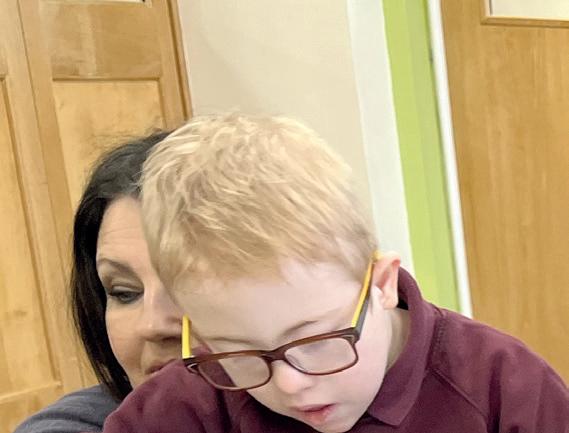
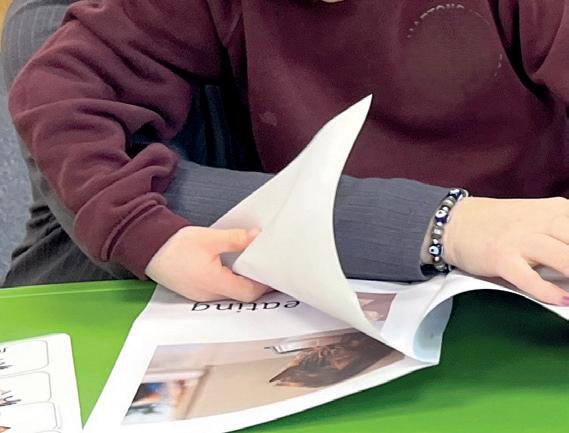
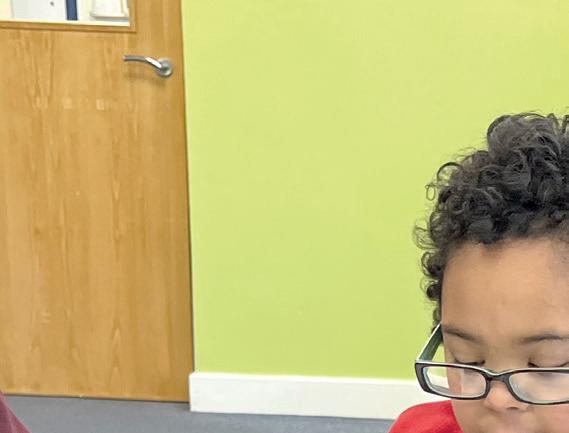
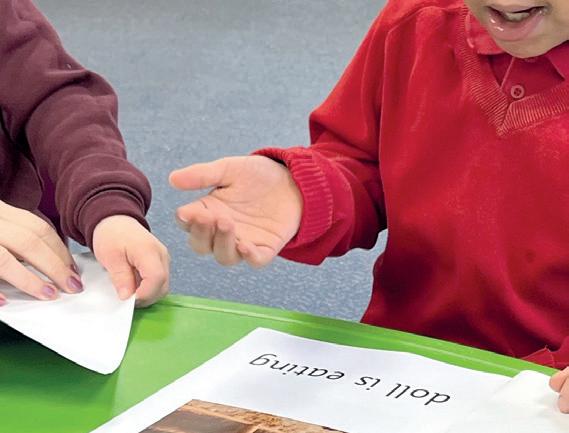

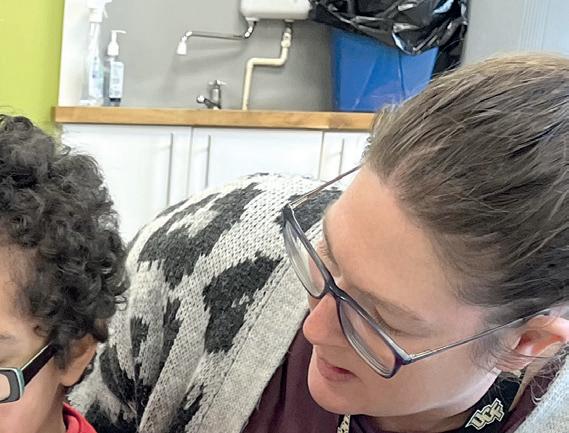
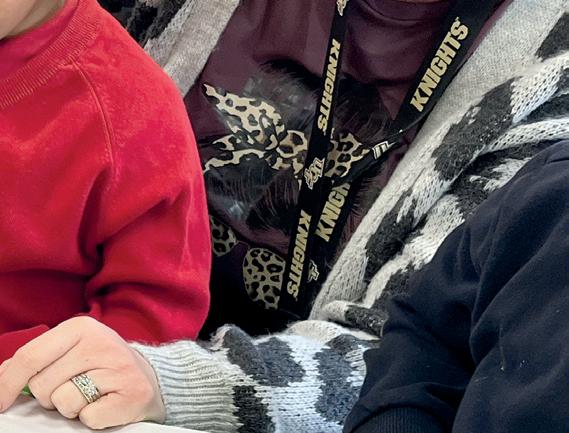
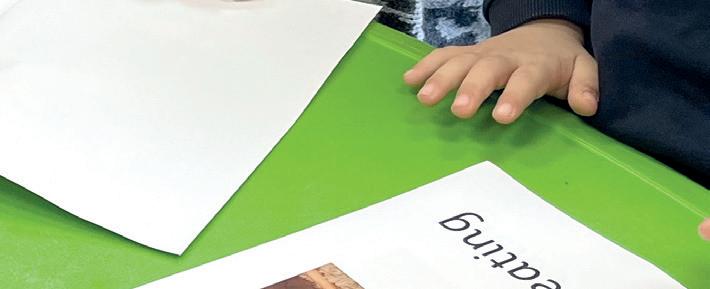
Paediatric trainees share their reflections on a community rotation
Community paediatrics tested our organisational skills, teamwork and MDT skills. Each month, there were medical-led clinics and communitybased sessions, as well as departmental governance and various MDT meetings, plus teaching sessions – all of which we had to fit into our schedule. Reviewing the clinic list, booking into community paediatric clinics, planning self-directed
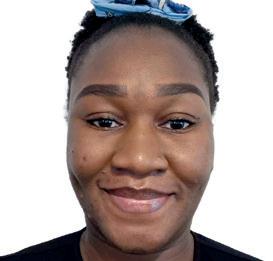
Dr Dyanne
Imo-Ivoke
Paediatrics ST4
Diana, Princess of Wales Hospital, Grimsby


Dr Sakinah
Said Ali
Paediatrics ST5
Hull University Teaching Hospitals
NHS Trust
learning and organising external visits helped us develop self-awareness. It felt empowering knowing that this post wasn’t just about service provision, but was shaped around what mattered most to us at this stage in our training.
As a group, we were at di erent stages of training with varied career aspirations (some not related to community paediatrics). While we expected to learn
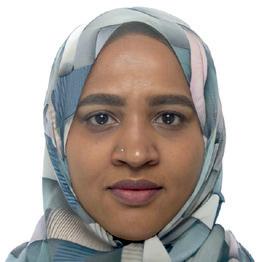
Dr Salma Elhag
Paediatric Registrar
Hull University Teaching Hospitals
NHS Trust



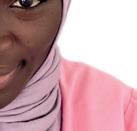
Dr Aisha Abdullahi
Paediatrics ST2
Hull University Teaching Hospitals
NHS Trust
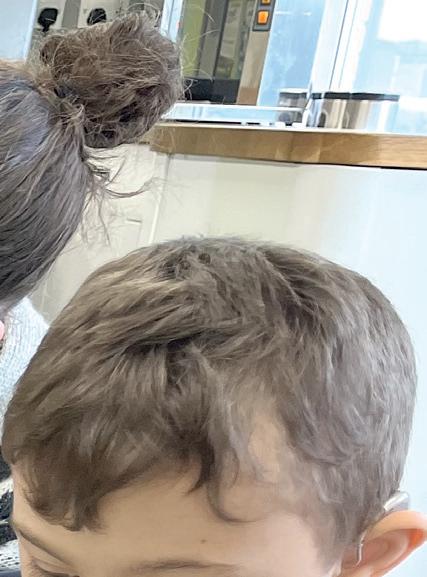
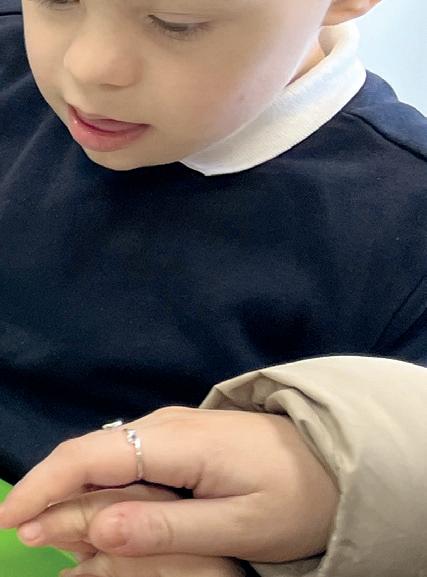
how to care for children and young people (CYP) with complex medical needs and participate in the safeguarding process, we didn’t anticipate how much we’d gain from stepping beyond the hospital setting – sitting in with Early Help groups, attending Allied Health Professional (AHP) clinics and observing voluntary sector organisation (VSO) sessions. These experiences taught us how to amplify CYP voices, meet families in their natural community and advocate by understanding what truly matters to patients.
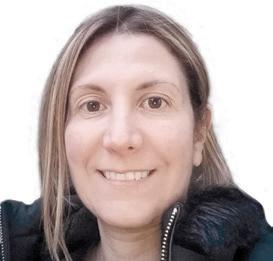
Dr Veronica Giordano
Paediatrics ST2
Scunthorpe
General Hospital
Shadowing the Early Help team
A half-day with the team and chatting with social workers gave us an insight into how the council supports families and what happens with all our referrals. The
“We are not just treating conditions but also supporting families through a journey that significantly impacts their children’s future”
role of social workers is often underrecognised. They provide crucial support to families, acting as a central point for coordinating services, monitoring vulnerable households and deciding whether to de-escalate involvement or escalate to a Section 47 enquiry when a child or young person is at risk.
We went away knowing that if we have a clinical hunch that something is going on with a family, or they are struggling or at risk of falling off our radar, our friends at Early Help can help. It’s a reminder that we’re never alone in caring for CYP and there are lots of resources we can offer by connecting with social services. If we amplified the early intervention aspect of social services, we could genuinely be ambassadors of preventive healthcare.
This team has built a community for families of CYP with Trisomy 21, and it’s impressive to see some of these children grow up and volunteer for the organisation. By observing intervention sessions, we had the privilege of listening to conversations, sitting in different classes (play-themed sensory, fine skill, eating, speech and language, and physiotherapy sessions), and seeing the volunteers involve the parents in every aspect. The VSO provides the ongoing support for families that we can’t in our time-constrained clinics. For some family members, what mattered most was being part of an inclusive community – one that understood when they couldn’t show up and offered warmth and encouragement but also recognised that sometimes even positivity could feel overwhelming. On those days, the community checked in and created space to simply listen.
This eye-opening experience reminded us that healthcare isn’t just about medical
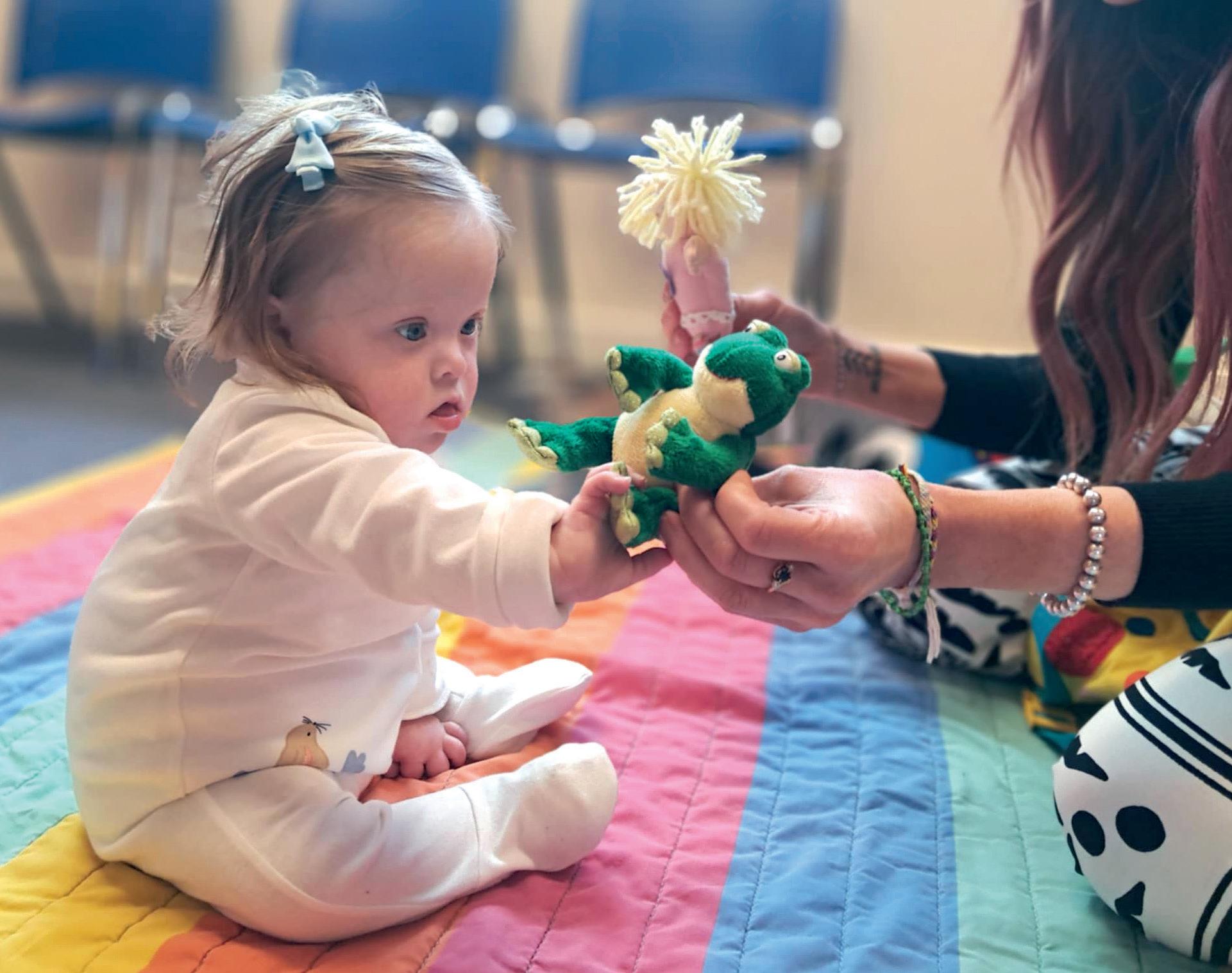
treatments, but also about offering emotional and practical support. It also highlighted how crucial it is to stay connected with the community and integrate family perspectives into treatment plans. It taught us that care should never be one-size-fits-all, but tailored to each child and family’s unique needs.
Observing physiotherapists performing the Cerebral Palsy Integrated Pathway assessments made clear the physical challenges CYP with developmental delays face daily. It gave us an insight into the intricate processes of identifying and managing developmental delays early on and the need for an individualised care plan that addresses specific needs. Adding to our understanding of early intervention, we now see the involvement of AHPs not as an afterthought, but as part of a parallel care plan for unwell children. It’s strengthened our belief in the value of a multidisciplinary approach, where every professional plays a vital role in shaping a holistic view of each child’s needs. One of us said: “It’s reminded
me that, as healthcare professionals, we are not just treating conditions but also supporting families through a journey that significantly impacts their children’s future.”
Gaining valuable insights
Our community experience has ranged from attending (and in some cases running) clinics on topics including, but not limited to, neurodevelopment, complex disability and safeguarding. We’ve attended different MDT meetings and joint clinics, completed dedicated 1:1 safeguarding study days, observed adoption panels and supported eating disorder ward rounds, while keeping our acute paediatric skills up to date by being part of the on-call rota for general paediatrics. We’ve also gained new clinical and management skills.
By stepping into non-medical clinics and community settings, we’ve gained the ability to listen more and seek collaboration with other organisations. By working alongside a team of specialists, we’ve seen firsthand how each professional plays a crucial role in supporting a child’s overall wellbeing.
With special thanks to the Community Paediatric and Children’s Safeguarding team at Hull University Teaching Hospitals NHS Trust
Follow the balloons to see the total number of children, young people and family members involved so far
● Around 30 children, young people and families are involved in designing the new focus and brand RCPCH &Us before its launch at the annual conference
● First activities include hosting an online Twitter chat during Mental Health Awareness Week
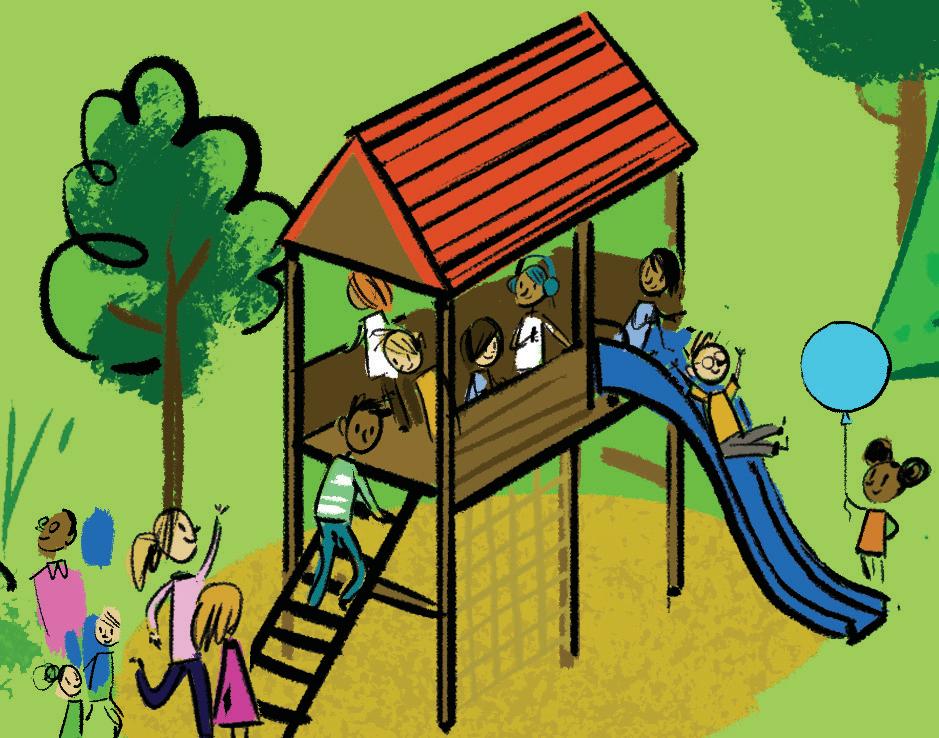


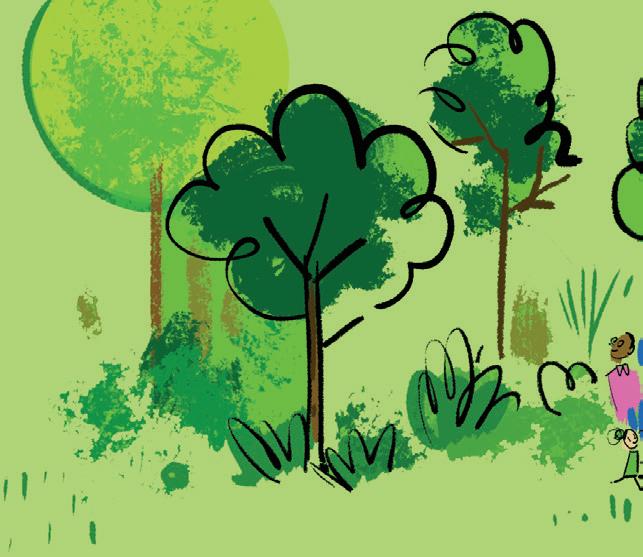

● Roadshows hear children and young people’s voices on healthcare issues, informing College teams’ takeover events across the UK
● The RCPCH Children and Young People’s Engagement Committee – made up of children and young people, parent carers and healthcare professionals working together – is established
● ‘Everyone Deserves the World’ letter about poverty incorporates the views of 500 children and young people
● Young people interview and help appoint a new RCPCH Chief Executive Officer
● Children and young people speak on mental health and poverty at State of Child Health launch events

● Party conference speeches are delivered for the first time, and the Emoji card game is launched



● We’re back doing face-to-face delivery in hospitals outpatient clinics, schools and on the streets
,



● More than 20 regular projects take place online every six weeks
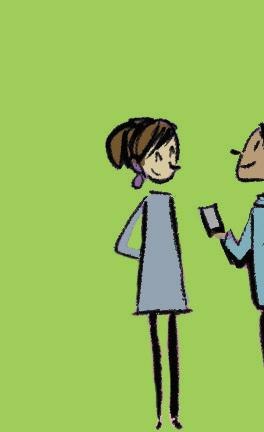


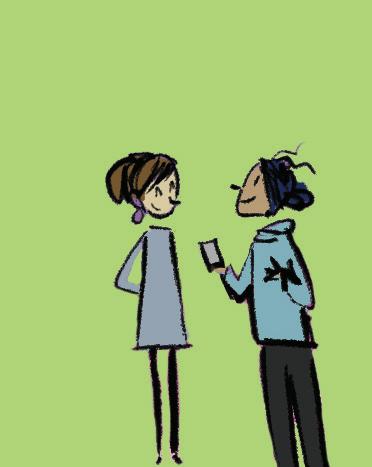
180 sessions take place in 35 locations across the UK
Nearly 1,000 children and young people take part in Clean Air roadshows
The RCPCH &Us podcast channel launches


and Us

● Flagship audit projects Asthma &Me Ambassadors and Epilepsy12 Youth Advocates start up, along with the first Voice Champion Award for healthcare workers selected by children and young people
● Participation in the NHS Youth Voice Summit
● Parent-led toolkit –#HiddenHealth – is launched





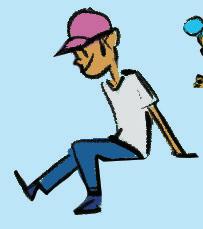

● Epilepsy12 Youth Advocates are awarded the HQIP Richard Driscoll Memorial Award for patient involvement
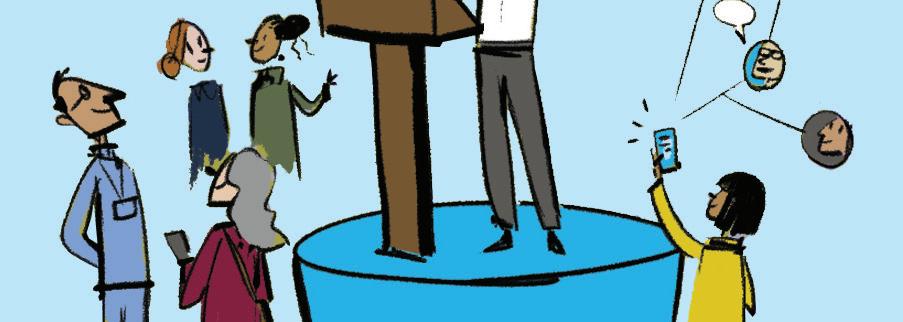


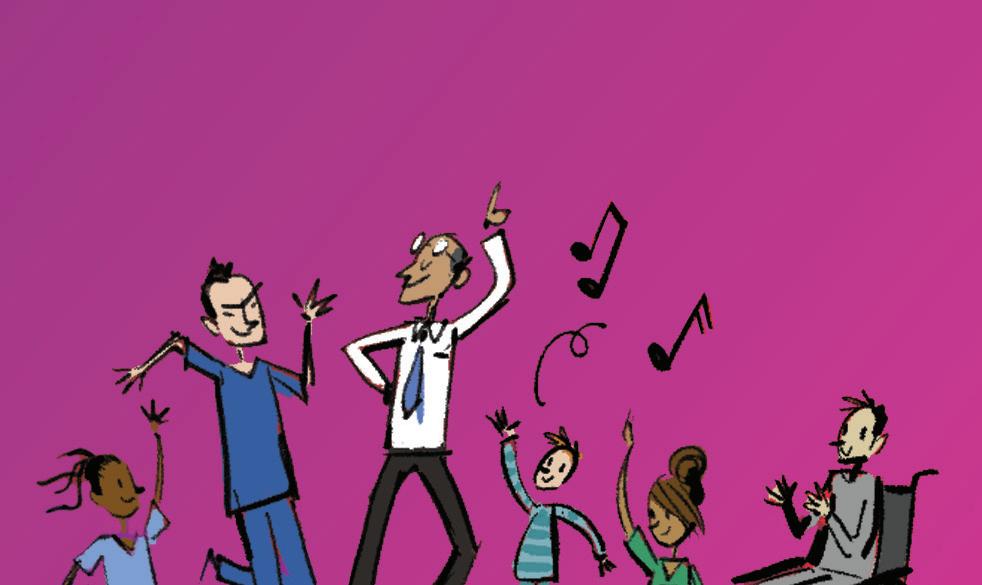
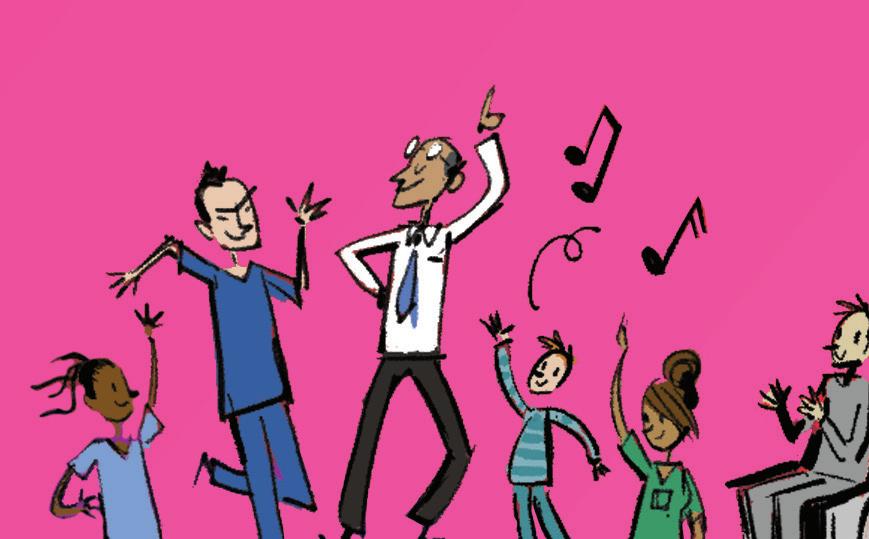
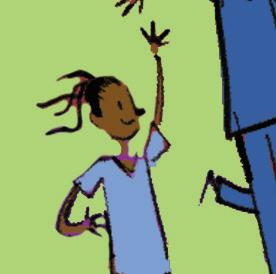

● Our Covid-19 book club adds the collective voice of 60,000 children and young people to creating an NHS Recovery Plan 4,906 8,295 7,734 9,059







● 5th birthday plans move online


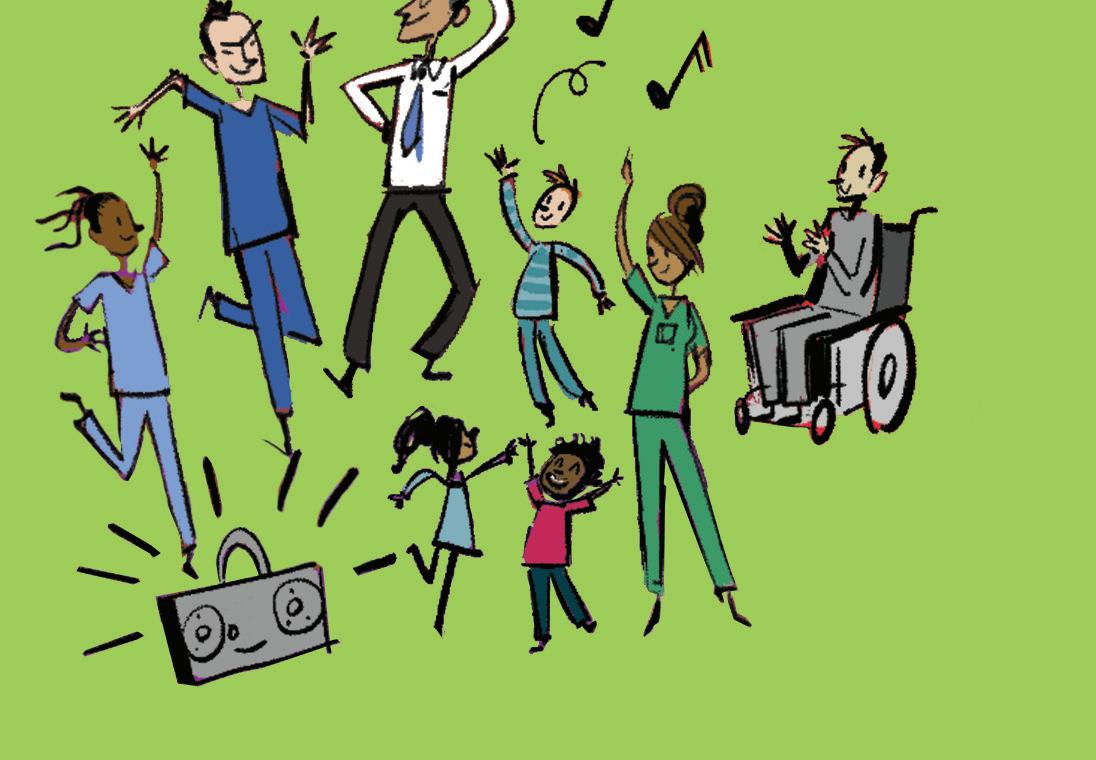
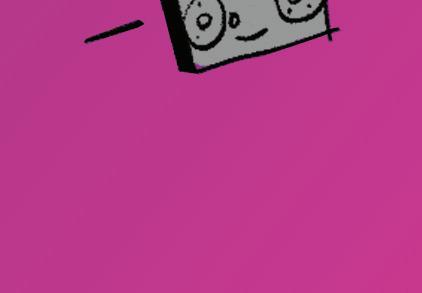





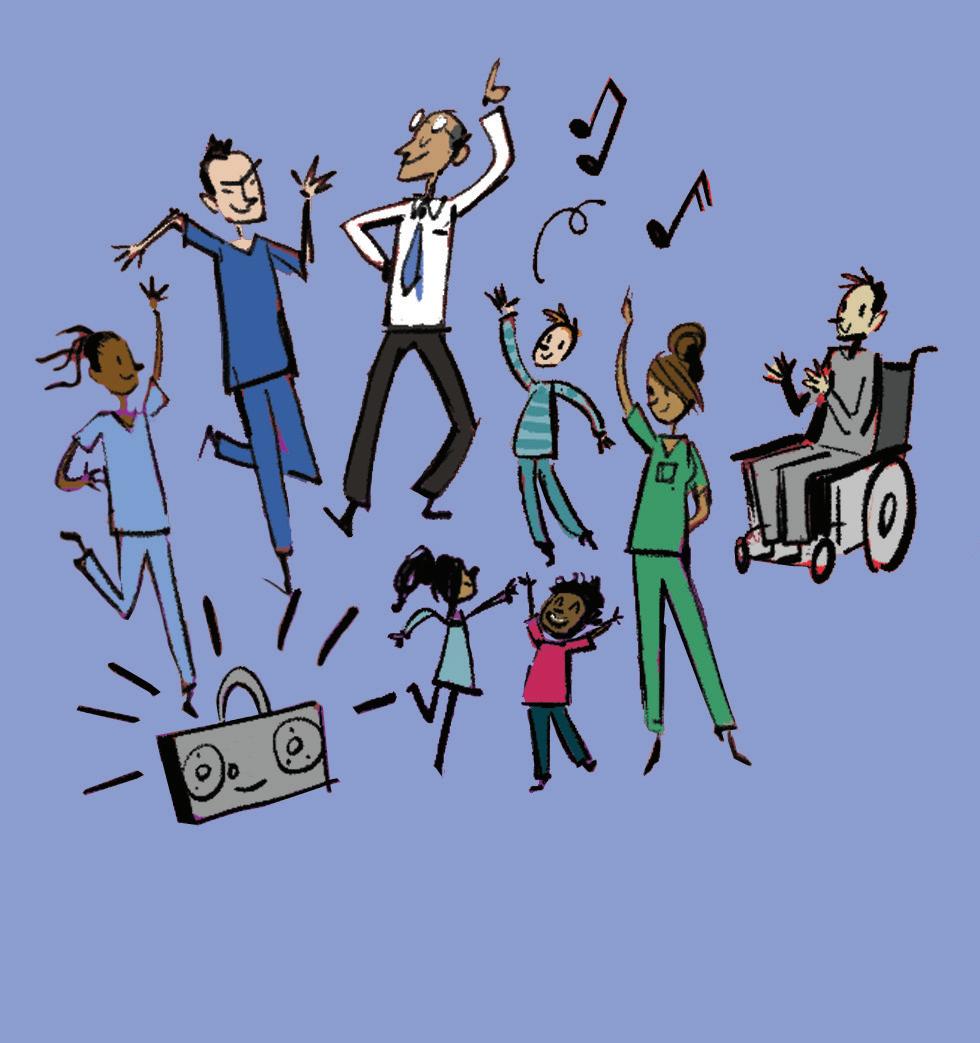
16,757 2025 yearInthepast alone (September2024toAugust2025)volunteered2,882hours people andbychildren,young 186parents/carers engagementsessionsdelivered tookhealthcare746professionals Academy-ledpartinEngagement sessionsanddiscussions

● Our Health Matters campaign links to the elections, with resources designed to raise awareness and encourage children and young people to advocate for child health
● Asthma &Me Ambassadors are awarded the HQIP Richard Driscoll Memorial Award, along with the adult asthma panel
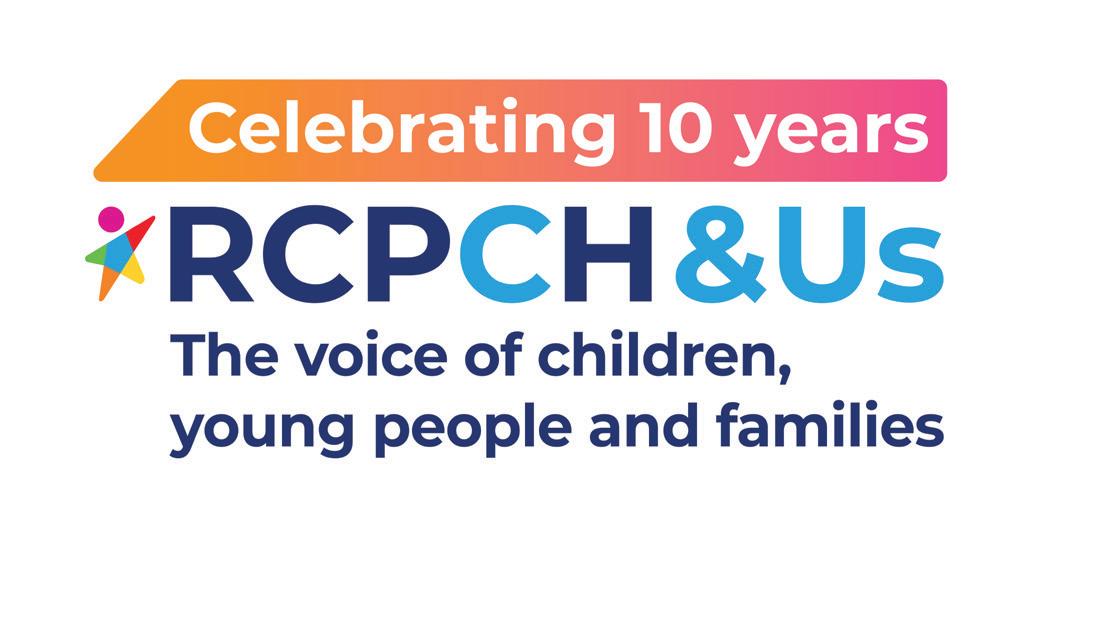

Children and young people represent RCPCH &Us in parliamentary events across the UK every year. Here’s a flavour of those that took place in 2025
Blueprint Parliamentary Roundtable
Westminster, London • 22 January 2025
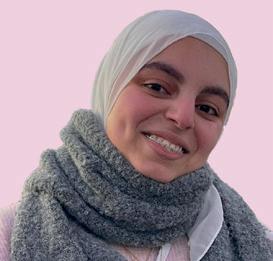
Hanin, aged 20
As co-chair, I helped facilitate the involvement of children and young people from RCPCH &Us, Association for Young People’s Health (AYPH) and Barnardo’s in discussions with healthcare professionals and policymakers. We explored how to prioritise children and young people’s needs both locally and nationally, particularly in relation to the NHS 10 Year Health Plan.
The group worked towards a consensus statement that highlighted the need for early investment in child health, stronger mental health support, better health education and reduced waiting times.
Despite the formal setting, I felt heard, valued and reassured as a young person. I felt I was able to meaningfully influence future child health policy through both my perspective and those shared by other children and young people. This experience rea rmed the importance of involving us in these conversations, not only because we understand firsthand the gaps in care, but also because these discussions help build trust and drive positive change.
RCPCH Collaborative Healthcare in Scotland report launch Holyrood, Edinburgh • 15 May 2025
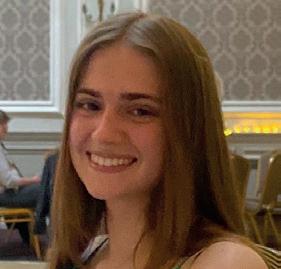
Skye, aged 16
The event was led by Dr Mairi Stark, RCPCH O cer for Scotland, to introduce a new report addressing concerns about healthcare in Scotland. The report covered five main points, each with a recommended solution to improve the quality of healthcare for children and
young people, including: (1) the urgent need for data (2) creating a sustainable child health workforce (3) collaborative care (4) positive transitions to adult services and (5) neurodevelopmental services.
RCPCH regularly consults the views and ideas of Scotland’s children and young people, which is clear as you digest the report where their thoughts and opinions shine through. Children and young people clearly know what needs to change; they just need representation where the critical decisions about them and the healthcare they are entitled to are made.
Community child health parliamentary event
Stormont, Belfast • 26 June 2025


Rory, aged 15
This conference asked politicians how they plan to improve paediatric healthcare. I found it quite informative. I listened to politicians discuss the issues and asked a question regarding how they plan to use the underutilised Children’s Services Cooperation Act 2015 (NI). All the politicians said they would ensure the act was fully utilised in the future, though the details were vague. I enjoyed the event. The atmosphere was friendly and positive. It’s important for children and young people to participate in events such as these, not only to have their voices heard, but also so they realise their voices matter, and that they can be a part of change and reform.
RCPCH Vaccines report launch Westminster, London • 1 July 2025
Dr Anna Rossiter and Clinical Lead
Dr Helen Stewart met with RCPCH &Us to gather our views on vaccination, and I had an opportunity to ask a question during the Q&A session.
I think it’s vital for children and young people to take up space in such settings, to represent our views and voices as well as to show policymakers and doctors that we want to actively contribute to improving the healthcare services we use, rather than just act as passive recipients of policy changes and decisions.
Advocacy begins with access – ensuring that young people get the chance to step into the spaces where decisions that directly a ect them are made.
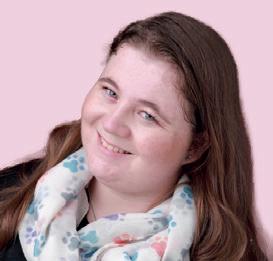
RCPCH Election Manifesto launch Senedd, Cardiff • 2 July 2025 Rebecca, aged 24 I took part in discussions about how healthcare can better meet the needs of children and young people in Wales. I shared my own experiences and helped explore ways that services could become more inclusive, accessible and responsive to young people’s real lives.
I felt heard, respected and genuinely valued. It’s not always common for young people to be invited into these spaces, especially when it comes to influencing healthcare policy. Being part of it made me feel empowered.


Noor, aged 19
Being present at the report launch was a fantastic follow-up to an online session last October, where
I think it’s important that children and young people attend these kinds of events – they are directly a ected by decisions made in healthcare, so their voices should be central to shaping those systems. The United Nations Convention on the Rights of the Child (UNCRC) says that every child has the right to be heard and taken seriously in all matters that a ect them, so this isn’t just a nice idea; it’s a right.
Lifestyle medicine is not yet established in paediatrics but one special interest group is committed to placing prevention and healthy habits at the centre of children’s healthcare
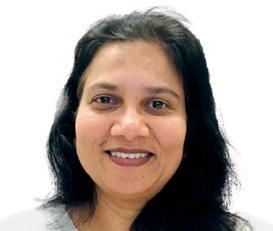
Dr Saraswati Hosdurga Consultant Community Paediatrician, Sirona Care & Health, Bristol Designated Doctor for Children in Care & Care Leavers, BNSSG ICB Regional Coordinator, BACCH Southwest
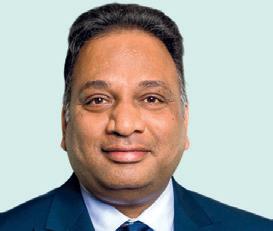
Dr Sunil Kumar Lifestyle Medicine Physician & Specialist Anaesthetist, University Hospitals of Morecambe Bay NHS Trust Lead Tutor for Lifestyle Medicine, Imperial WHO Collaborating Centre
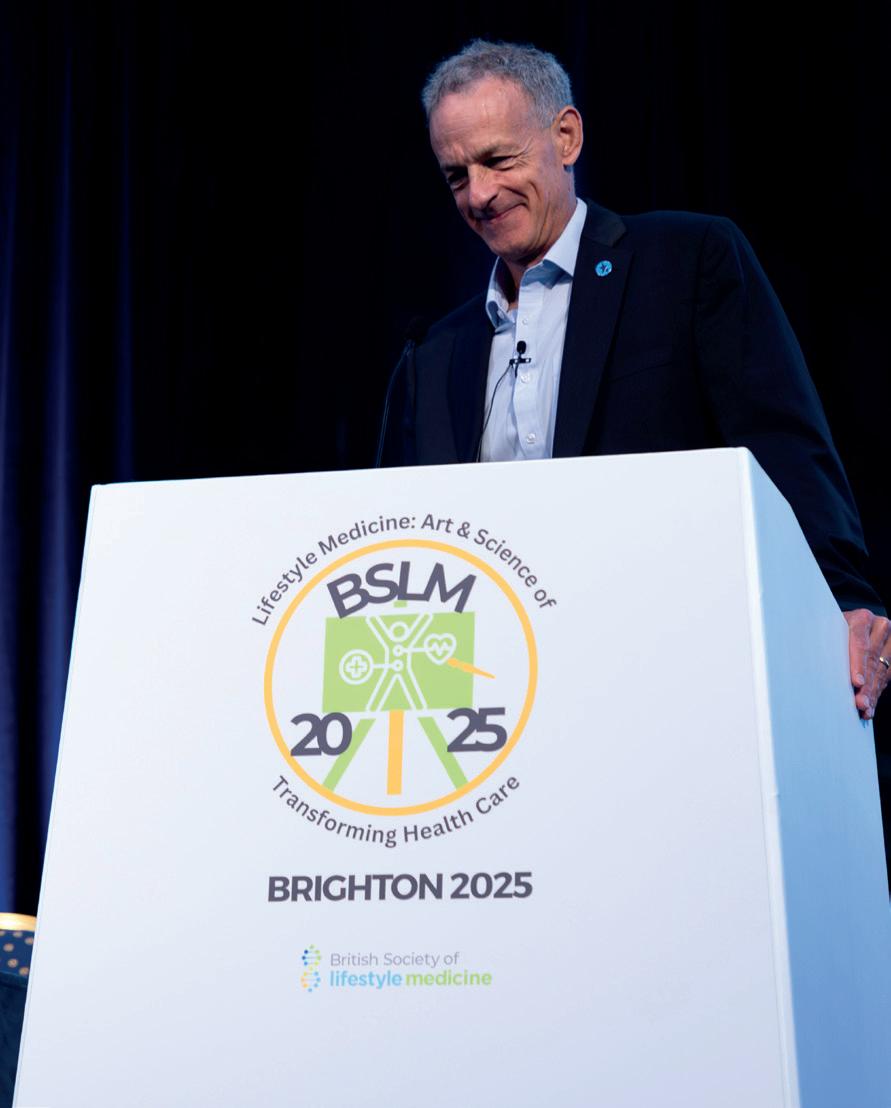
Lifestyle medicine is an evidence-based, personalised approach to care that supports behaviour change through person-centred techniques. It focuses on modifying daily habits as a key strate for preventing and managing chronic diseases and disorders, with benefits that extend to families, schools and communities.
Rooted in addressing the causes of poor health, lifestyle medicine aligns with the NHS 10 Year Health Plan and Lord Darzi’s review, both of which prioritise early intervention and prevention.
An opportunity exists to integrate lifestyle medicine into paediatric clinical practice. This requires a paradigm shift in thinking: from simply diagnosing and treating to predicting and preventing and prioritising healthy lifestyle choices.
The six pillars that form the foundation of lifestyle medicine have a strong emphasis on health behaviour change and motivational interviewing (below), and can be introduced as family-centred lifestyle interventions. Clinicians should take time to address these pillars at every opportunity, as every contact counts.
Management plans for chronic conditions should include prescriptions
“Clinicians should take time to address these pillars at every opportunity, as every contact counts”
for each pillar of lifestyle medicine. In many cases, delivering these action plans through coaching or a group consultation model can lead to better health outcomes and prove more cost-e ective. We hope that lifestyle medicine becomes as commonplace in paediatric clinics as antibiotics, ADHD medications or inhalers. We also believe that greater collaboration between RCPCH, the British Association for Community Child Health (BACCH) and the British Society of Lifestyle Medicine (BSLM) is essential to influence policy, embed lifestyle medicine in paediatric care and prevent chronic diseases/disorders in CYP.
Join the paediatric lifestyle medicine special interest group we’ve created in association with the BSLM. Contact us at office@bslm.org.uk
Dr Tony Hulse reflects on why he still finds paediatrics so addictive and how he has managed to retain that passion throughout his long career
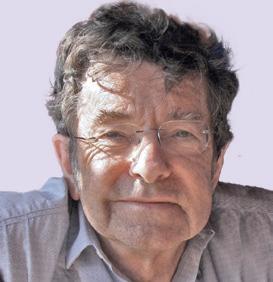
Consultant Paediatrician & Endocrinologist
Previously
at Evelina London
Children’s Hospital
Ihave spent the past 10 years failing to retire! Only one person is to blame for this. Covid-19 played its part – not a great time to hang up the stethoscope (or in my case, the orchidometer) and abandon ship, but I finally ‘got there’ two years ago. This year, I was asked to return to help a local trust with some huge waiting lists. The o er was too tempting, so I have ‘de-retired’ for now.
The truth is that I find paediatrics addictive. The combination of science providing some sort of scientific ‘truth’, and the complexity of dealing with people. We apply knowledge (say, on drug e ectiveness), that is derived and averaged from groups of patients to individuals, and call it ‘evidence-based medicine’. And it mostly works. But who’s to know whether that child, the family sitting in front of you, is not the outlier in
that data set? So a carefully planned trial of n=1 may sometimes be justified outside any guidelines.
Working towards retirement was not easy, having spent my whole adult life in the NHS, sometimes on 1:2 or 1:3 on-call rotas. It leads to self-reflection. I have become interested in ‘resilience’ and what drives some people to retire early, which marks a huge loss to public services.
As a trainee, I was very fortunate to be able to undertake three years of full-time research, leading to several publications. The legacy for me has been a continual interest in the research questions of day-to-day clinical problems.
This time was a respite from relentless on-call rotas, but it was tougher than clinical work. I think the current early career identification of researchers is wrong – as paediatricians, we should recognise that there are early and late developers in research and an academic ‘11+ exam’ is not the way to go. Similarly, at the consultant level, I have huge sympathy for those who want to do research and have brilliant ideas, but lack the time or resources to do so. We should do much more to support them. So research can be part of resilience.
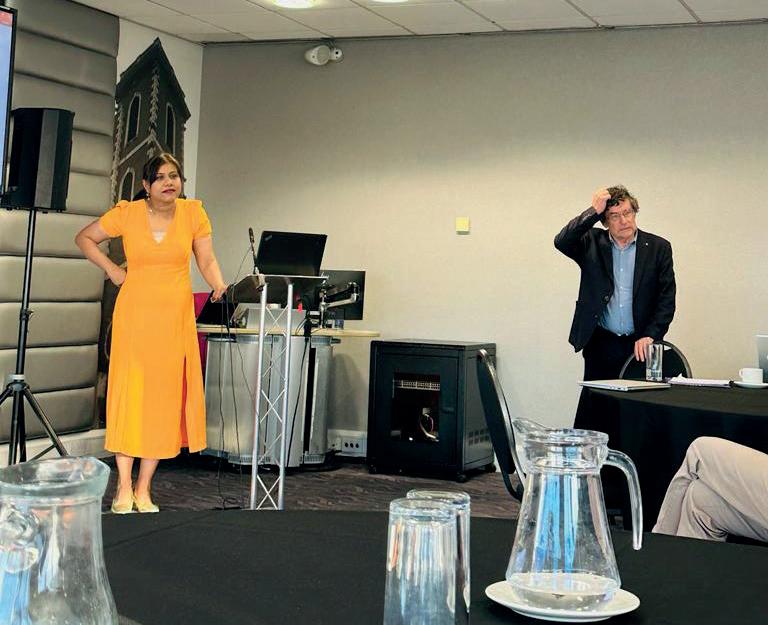
Most of my research has been clinical, apart from a year in San Francisco when I worked on the mechanisms of growth hormone release. As a registrar, I was very lucky to be
able to work for two years on a large pilot programme for neonatal hypothyroid screening. Since no control group was planned, I collected information on the outcome for congenital hypothyroidism before screening, which showed a strong relationship between poor outcomes and delay in diagnosis, confirming that screening would probably work. We subsequently found that it prevents most learning disability.
During the pandemic, I played a small role in a national project with the wonderful name of DIMPLES (diabetes mellitus in children and young people presenting to the emergency department during the SARS-CoV-2 pandemic). It was run by the PERUKI (Paediatric Emergency Research in the United Kingdom and Ireland) network and led by Dr Caroline Ponmani, a consultant in paediatric emergency medicine. This showed it’s clear that Covid-19 is strongly associated with an increase in prevalence and severity of diabetic ketoacidosis (DKA) in type 1 diabetes and has produced several ongoing projects. Clinical research is a bedrock for clinical medicine and it should be part of everyday practice to try to answer tricky questions that arise.
progressing
The next strand to the retention of consultants is allowing career progression. This is often seen as going into clinical management, teaching or sometimes research, but a progression of the clinical focus is also important.
Although I’d done a lot of endocrinolo research and had many publications, my first consultant post was as a general paediatrician for over 20 years, and I do not regret that. Late in my career, I changed jobs and slowly morphed into being a paediatric endocrinologist and established joint renal clinics, achondroplasia clinics and much else, something impossible
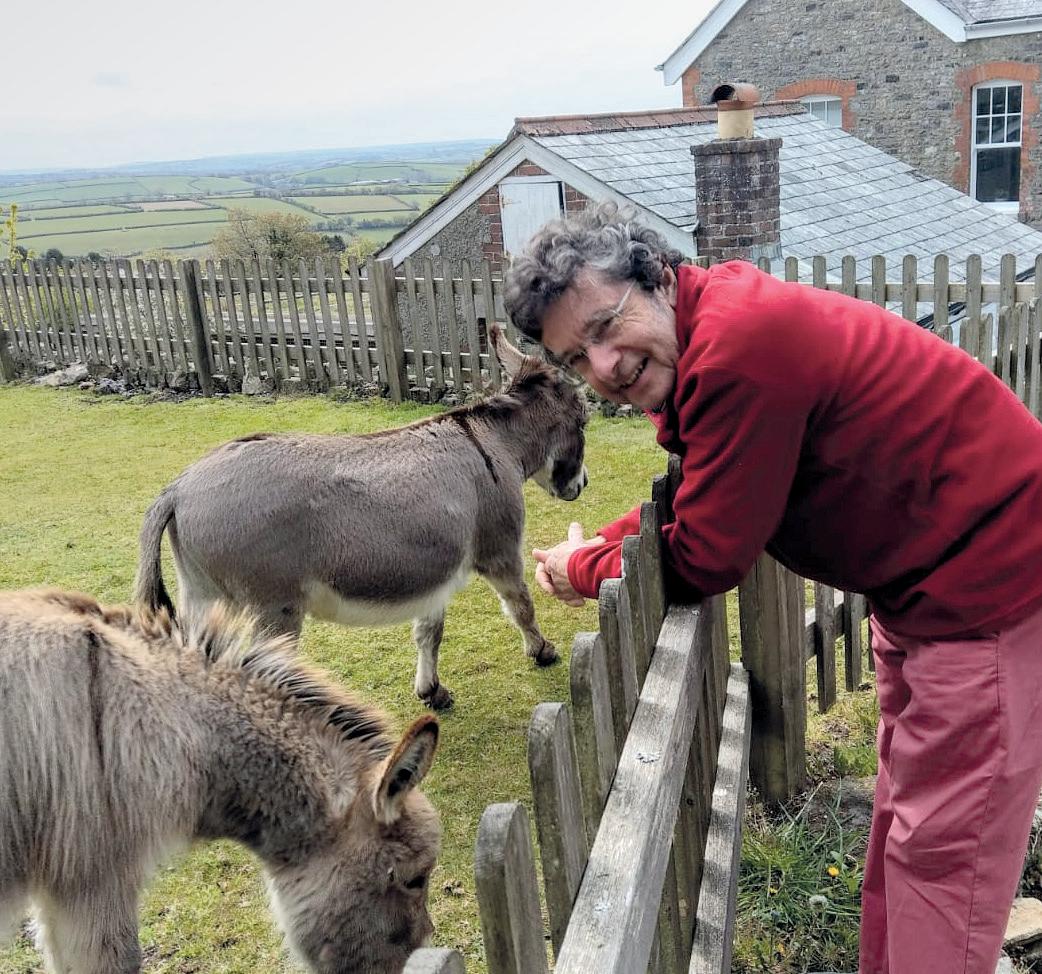
“I have become interested in ‘resilience’ and what drives some people to retire early, which marks a huge loss to public services”
in a DGH. I could never have stayed on working as a general paediatrician. Our current structures don’t adequately support this progression from being a generalist to a specialist, or even switching specialty. And becoming a specialist means knowing more and more about less and less. Great – it simplifies journal reading!
Pursue extracurricular interests Apart from progressing our clinical careers, taking up a new interest or activity also helps. It may be sheep farming or embroidery but for me, oddly, it has been RCPCH.
I had represented the College on consultant advisory appointment committees (AACs) for many years, but when they advertised for a clinical lead, I applied and was surprised to be appointed. Working with the RCPCH AAC team, we have transformed College processes, which we hope will help new consultants at a vulnerable stage of their lives. I also developed an interest in the history of paediatrics and child health – a sure sign of ageing – and am the current president of the BSHPCH. I seem to be on lots of committees!
For me, keeping our consultant paediatricians engaged, happy and wanting to continue working involves allowing career progression, developing a
specialism, enabling research, developing new interests and, finally, being able to work less than full-time and come o on-call rotas. It needs to be a personal package and, of course, many other factors come with age – your health status, other caring roles and unpaid childminding.
Continue to be fascinated Nearly every week since returning to clinical practice, I come across something surprising. Recently, I saw a quite distressed 15-year-old boy with considerable naecomastia, a typical endocrine story. Obesity was part of the problem, but his breasts were really huge and droopy.
We can measure hormones and possibly o er a medical treatment, but really the only solution is surgery – a procedure that will almost certainly be seen by commissioners as ‘cosmetic’. His mum said she also needed to lose weight, as she carried a gene ‘similar to BRCA’. She gave me the name of the gene, which I had not heard of before, but after five minutes on OMIM, I thought I was an expert.
There was a high risk of breast cancer, and simple genetics gave him a 50/50 risk. Suddenly, his need for testing and possibly the surgical option seemed to be transformed. But later, when I asked a real expert, it turned out that – for this gene –the increased risk is not present in males.
So many surprising twists come from family history. So much of our future health is genetically determined, not just by single gene changes, so we have a huge opportunity to influence our young patients’ futures by looking at conditions that run in families, such as type 2 diabetes. My advice: go beyond the presenting problem and take a good family history. You might transform your patient’s future. And what teenager wants to follow what their parents do?! So that’s my ‘retirement’ story. My thoughts. But you need to do it your way.
We’ll feature a range of retirement stories in upcoming issues, showcasing the many ways paediatricians are navigating life after or alongside clinical practice. We’d love to hear yours, so email the team: milestones@rcpch.ac.uk
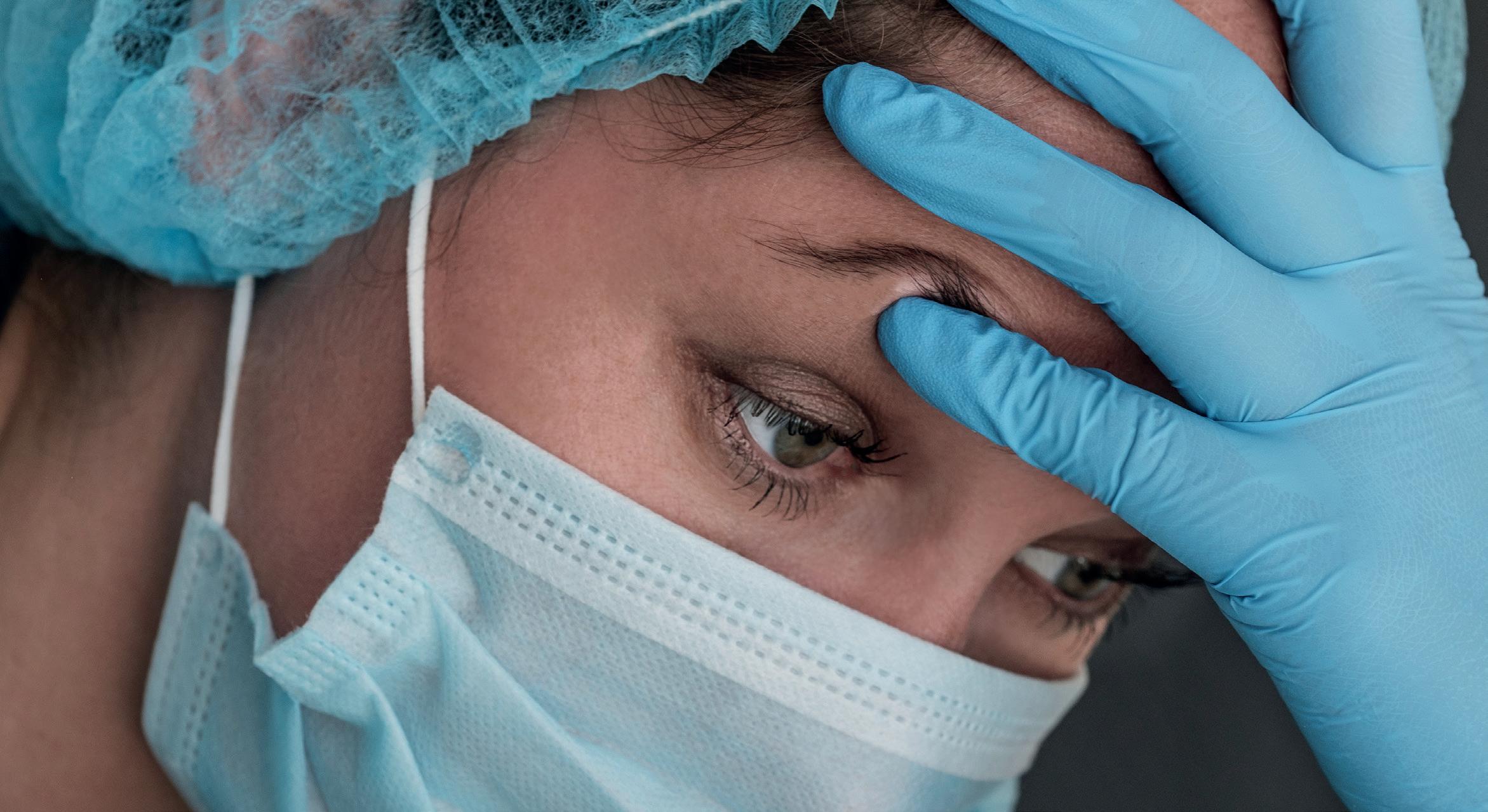
A workforce that’s barely hanging on is not sustainable and cannot deliver compassionate, high-quality care – that’s where WHAM’s new wellbeing resource comes in
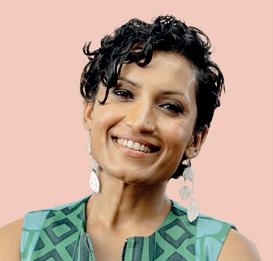
Dr Guddi Singh Consultant Paediatrician Founder & Director of WHAM @DrGuddiSingh
Ididn’t have a British passport until I was 10. In North East England, where I grew up, I was told not to aim too high. But like so many immigrant kids, I worked hard to make up for it. I believed in the NHS and in the promise that if I just kept going, if I gave more, learned more, did more, it would all be okay. But no one warned me about the long, grey corridors of trusts, where joy quietly drains from even the most passionate
among us, and trying to address the root causes of illness – poverty, hunger, cold – is met with eye rolls or the words: “That’s someone else’s job, sweetheart.” Nothing in my training prepared me for that kind of helplessness – for the disillusionment of working in a system more invested in sickness than in health. I was burned out, bitter and heartsore, convinced that paediatrics, and the medical profession itself, had become irrelevant to our patients’ real needs. All the hard work in the world did not save me from the loneliness and shame of high-functioning depression. From the anhedonia. From feeling like I didn’t
belong. I didn’t leave medicine. But I came close. Several times. I stayed – like many of you – because I love this work deeply. Because there is no more privileged position than sitting beside a child and their family and asking: “How can I help today?” But I also stayed because I wanted to change medicine from the inside out.
Wellbeing is not a luxury
WHAM (the Wellbeing and Health Action Movement) has made wellbeing a central pillar of our work. Not the soft-focus, scented-candle kind, but the kind that insists wellbeing is structural. That burnout isn’t a personal failure, but
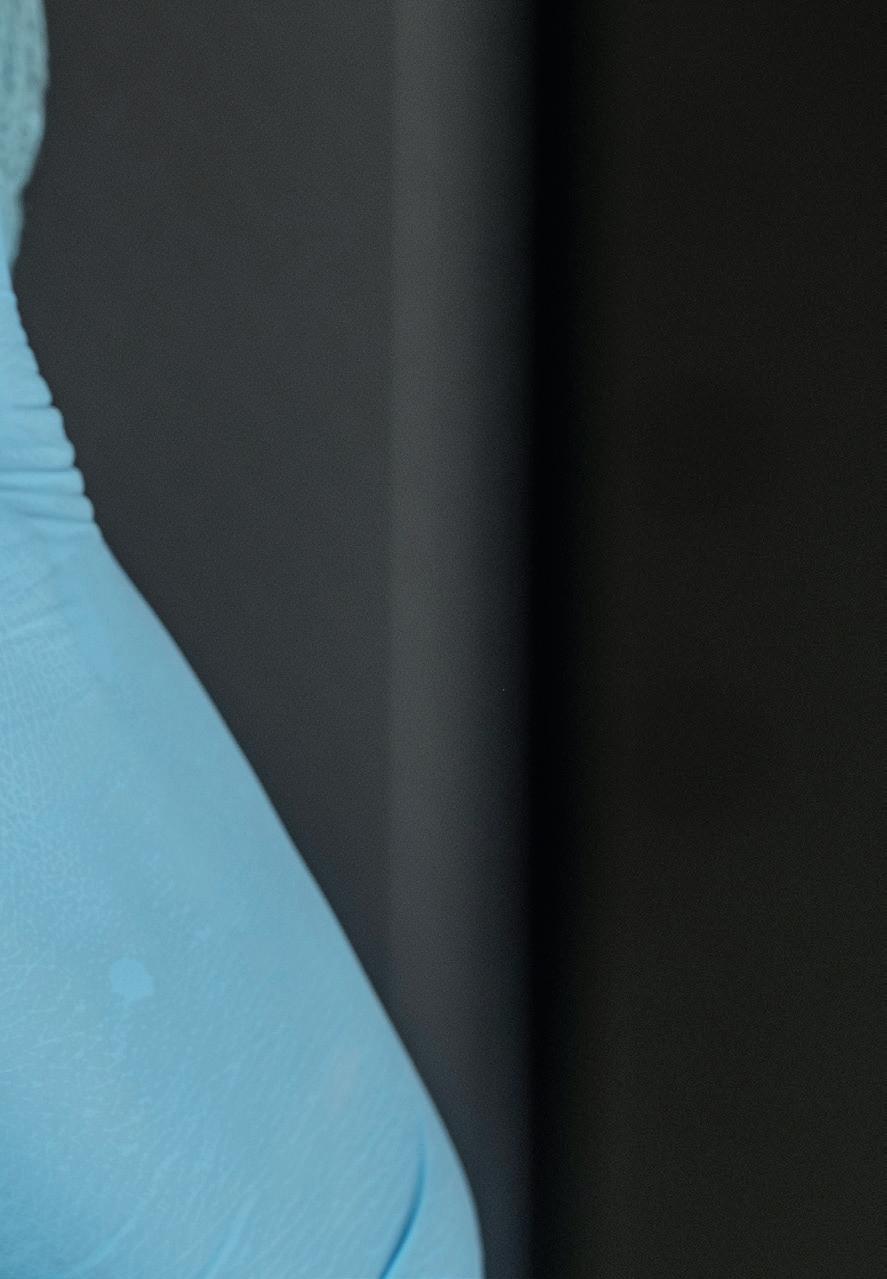
“Caring for myself is not self-indulgence, it is self-preservation and that is an act of political warfare” Audre Lorde
a collective wound. That sees clinician cynicism and emotional detachment not as moral shortcomings, but as moral injuries inflicted by unjust systems. True wellbeing means building systems that don’t just help clinicians survive, but help us flourish. It means rejecting the lie that exhaustion is noble, or that being a good doctor means being a martyr. Wellbeing is an ethical obligation. If we’re ground down, emotionally numb, depleted, then what kind of care can we offer? What kind of example are we setting for our juniors? We owe it to ourselves, but we owe it to our patients, too.
Reimagining clinical practice
We’re asking a different question: what if
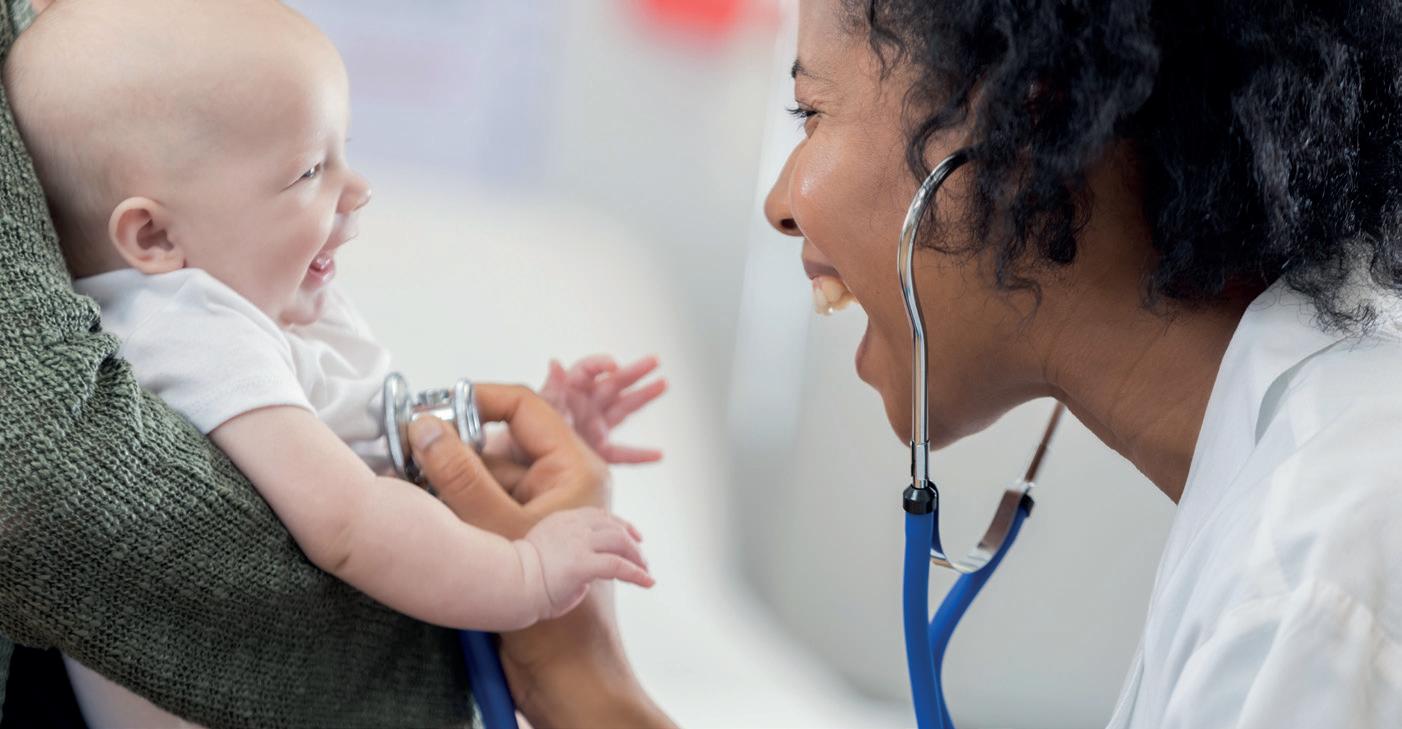
clinical work could be more than service? What if each encounter were a moment of moral engagement, a site of transformation for our patients and us? Of course, we’re constrained by rotas, targets and staffing shortages. By the relentless grind of tick boxes. And yet, sometimes, joy breaks through. A child’s laughter. A parent’s relief. These are fragile gifts. Systems can make such moments possible, or crush them. So our work is to remake the systems. To insist that clinical excellence includes emotional sustainability.
This year, in addition to celebrating our fourth birthday, WHAM turned inwards. We’ve always focused on changing pathways, policies and practices. But now, we’ve built a space to nourish the clinician within the system. Our new WHAM First Aid Kit is a growing collection of tools, reflections and ideas that treat wellbeing not as an individual burden, but as a shared project. We’re making space for the voices too often unheard: the junior doctor who dares to say this isn’t working; the nurse who brings presence into chaos; and the paediatrician who insists there must be a better way.
When we talk about justice in medicine, we usually mean patients and themes of access, inequality and the social determinants of health. But justice must also reach inwards to how we treat one another. To how institutions value (or exploit) their workforce. To how we construct the identity of the ‘good doctor’.
That’s why we want to change the profession itself. You’ll find us making noise, but we’re not doing it alone. We’re amplifying voices through projects such as Powering Up, on our website, through my new Substack (a home for musings such as this) and in the media. You’ll find me on BBC Sounds in Three Ages of Child, talking about child health in the UK – not from the perspective of CEOs or metrics, but from those who fill in the cracks of a crumbling society: ordinary clinicians, educators, advocates and patients who live with the consequences of political choices every day. People just like us. We hope you’ll add your voice.
Discover more from WHAM and join a growing movement for better, fairer healthcare.
Listen: Three Ages of Child – my BBC Radio 4 series available via the RCPCH Learning page and on BBC Sounds: bbc.co.uk/programmes/m002k385
Learn: Explore WHAM’s First Aid Kit: whamproject.co.uk/first-aid-kit
Reflect: Subscribe to More than Medicine – my Substack for essays and reflections on health, inequality, justice and what it means to stay human as a professional today: substack.com/@ drguddisingh
Connect: Join the WHAM community – sign up to our mailing list or get involved by scanning the QR code.
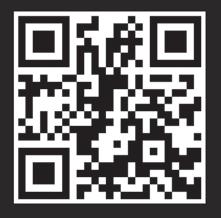
From Delhi to Sydney, London to Toronto, this neonatologist’s journey highlights the power of global experience and the value of following your professional instincts


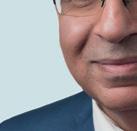
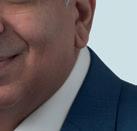
Professor Arvind Sehgal Neonatologist and Head of Neonatal Cardiovascular Research Monash Children’s Hospital, Australia
@Arvind_ Monash
My grounding in neonatolo took place at Kalawati Saran Children’s Hospital (part of Lady Hardinge Medical College) in New Delhi. As the biggest paediatric hospital in Asia, comprising two neonatal units with 75 beds, the opportunities for clinical learning and research were immense. Under the tutelage of supportive mentors and supervisors, I managed 10 publications before completing neonatalpaediatric fellowships over six years.
During this time, I met Dr Parvathi Iyer –a neonatologist who had returned to India after a stint in Sydney – at a continuing medical education (CME) event. This was a career-defining moment for me. She looked at my CV and advised me to head overseas for further learning and to expand my neonatal experience.
This took me to Sydney in 2003. Of course, the sunny weather, iconic beaches and the laid-back Aussie demeanour had nothing to do with that! Within the neonatal registrar rotation programme, I worked at tertiary hospitals: Liverpool Hospital, the Royal Hospital for Women and the Children’s Hospital at Westmead. At Liverpool Hospital, I was mentored by a neonatologist skilled in functional echocardiography, which sparked a lasting interest in the use of echocardiography to assess cardiac function.
My focus on neonatal cardiolo ultimately led me to a fellowship at University College London Hospitals (UCLH). I continued developing this
expertise while participating in the neonatal specialist registrar roster, where I learnt and provided service for cardiac function assessments in critically sick babies. I also attended cardiolo outpatient clinics at Great Ormond Street Hospital. Working at UCLH gave me a good insight into the clinical applications of neonatal echocardiography.
stop:
During the paediatric posting of my internship in New Delhi in 1995, my then-supervisor, Dr Piyush Gupta, suggested I go to Toronto at some stage. He must have seen something in me, but I was too young to think much of it, and yet here I was, 10 years later, headed to the Hospital for Sick Children, University of Toronto.
A two-year integrated perinatalneonatal fellowship programme provided an unparalleled learning opportunity, where I expanded my neonatal-perinatal skills and built on my neonatal cardiolo profile. I was able to appreciate how to interpret clinical information in its true pathophysiolo sense and make physiolo -appropriate diagnostic/management decisions. The art of ‘problem-solving’ and learning the CanMEDS framework was something I valued most.
In 2007, I returned to Australia and was appointed to an adjunct senior lecturer position at Monash University, before being promoted to associate professor and then professor of paediatrics in 2016. I completed a PhD while continuing to work as a full-time intensivist and, this year, completed a doctorate in medical and health sciences. It’s the highest degree awarded by the university for work that makes an internationally recognised,
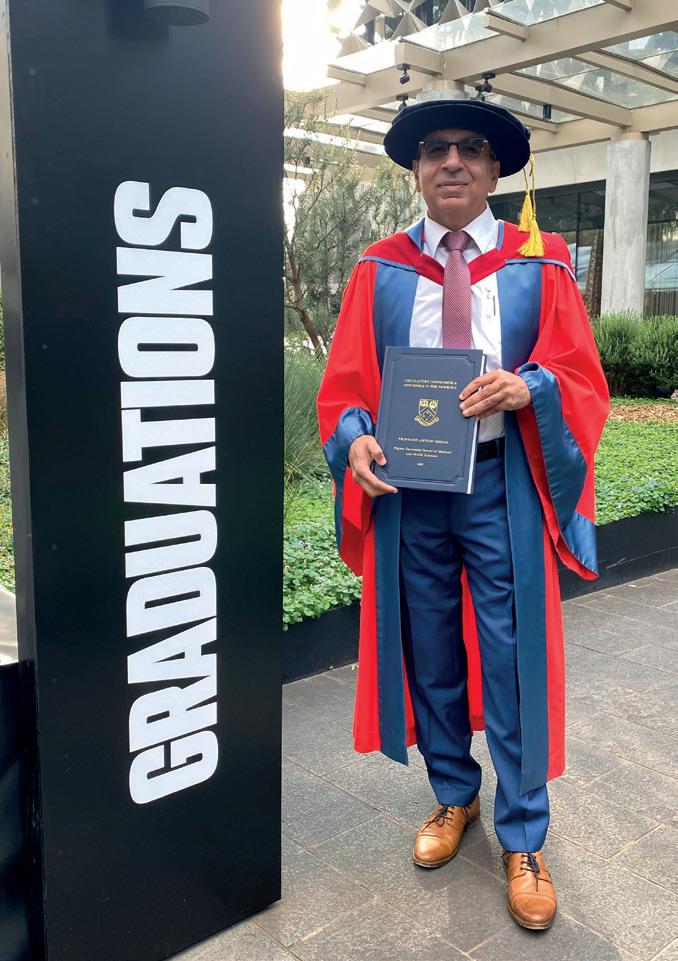
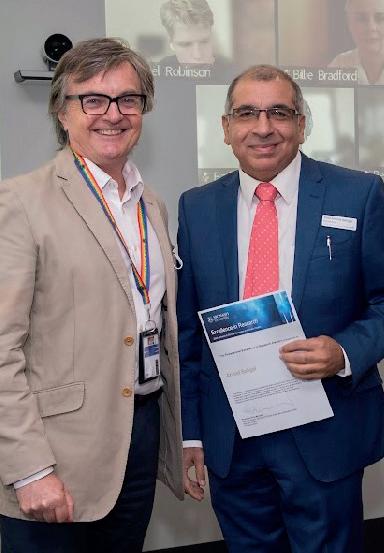
original, substantial and distinguished contribution to knowledge within the faculty concerned. This came after receiving the professional excellence in research award in 2023, while my work has twice won the Australian and New Zealand neonatal network award for best research (2019 and 2024).
As head of cardiovascular research, I lead a multidisciplinary team of junior doctors and nurses conducting cutting-edge studies, resulting in over 150 publications in international peerreviewed journals. Alongside my research role, I maintain a full clinical load at this busy 64-bed quaternary unit. It o ers exceptional opportunities for clinical and research training, being co-located within the Monash Health Translation Precinct and the Hudson Institute of Medical Research – both internationally recognised leaders in discovery science and translational medicine.
Following my instinct and interest rather than sticking to a prescribed career trajectory worked for me. For those aiming to travel and experience career opportunities in various countries, I hope this works as some kind of template.
Paediatric consultant
Dr Victoria Agunloye discusses the topic of ‘balance over perfection’
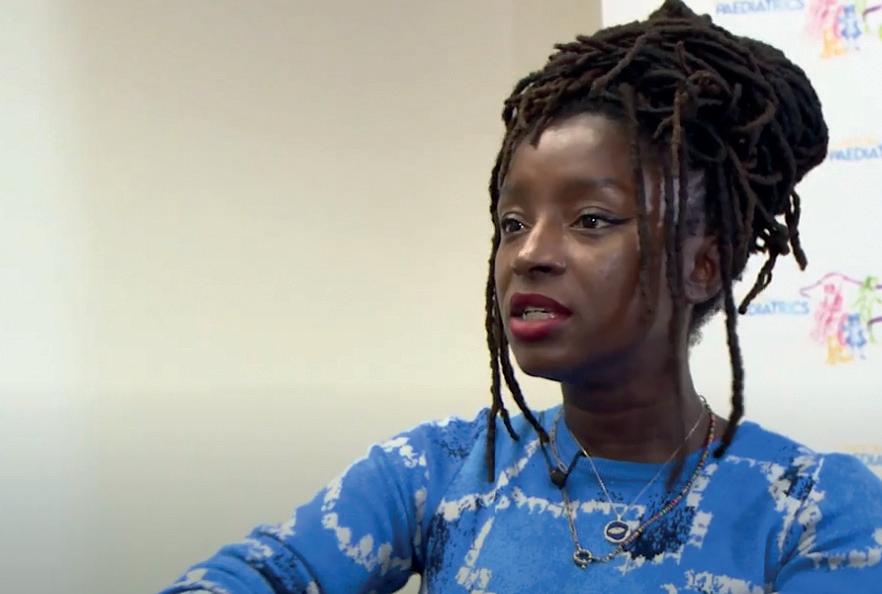
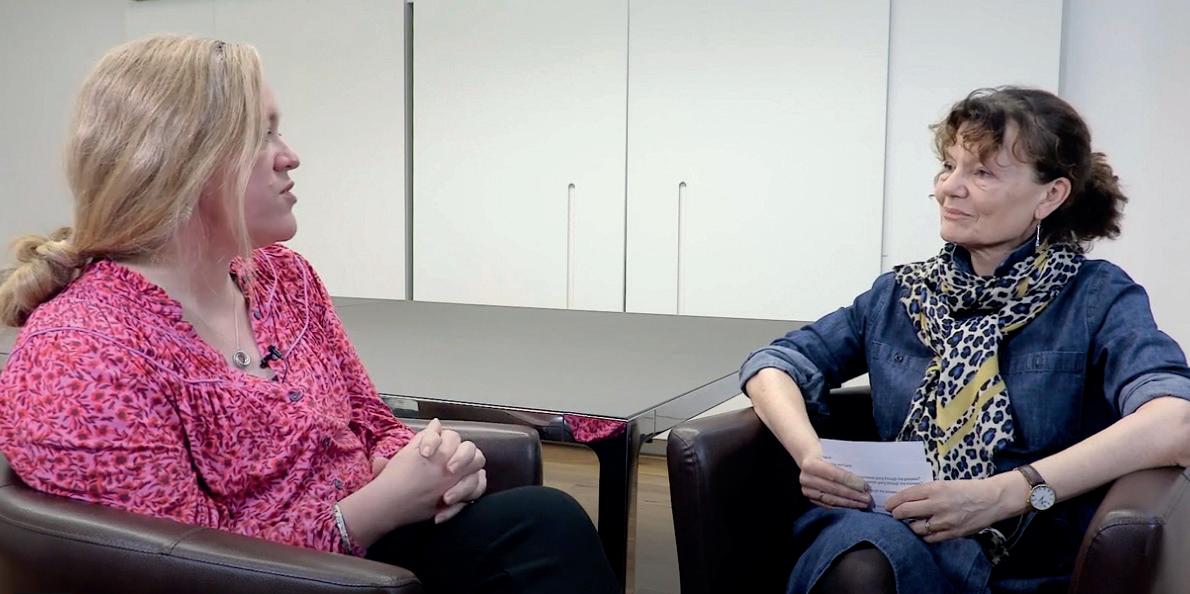
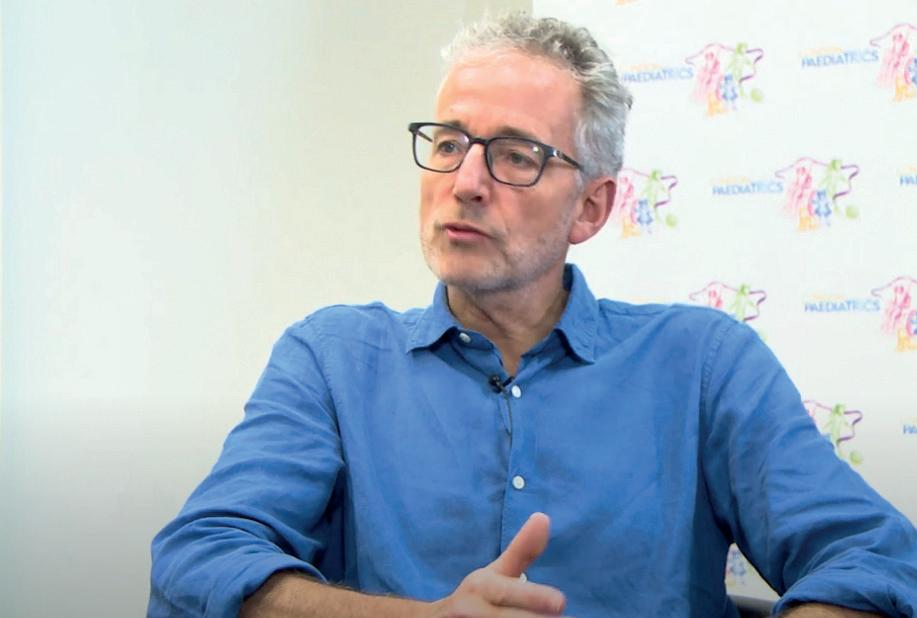
Professor Jonathan Round, head of the London School of Paediatrics, contributes to the video series
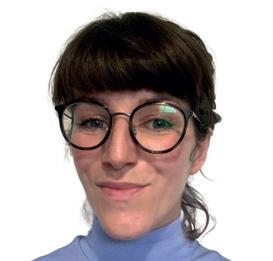
Dr Catherine Douch
Neonatal GRID ST7
Homerton University Hospital
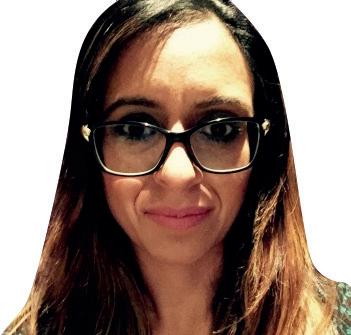
Dr Trisha Radia
Clinical Director
Child Health King’s College Hospital
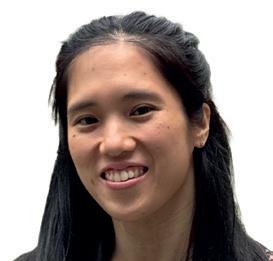
Dr Li Yan Chow
Paediatric ST8
Northwick Park Hospital
The London School of Paediatrics has launched a five-part YouTube series exploring key wellbeing issues for trainees and consultants
Designed and cowritten by Li Yan, Trisha and Catherine with the support of all the healthcare sta involved, this series takes an honest look at the challenges and realities of life in paediatrics. Trainees and senior consultants –including Professor Jonathan Round, head of the London School of Paediatrics – share their stories and advice, talking openly about how they look after their wellbeing. Each episode opens up conversations that matter to paediatricians at every stage of their career – o ering reassurance, insight and strategies for support.

Balance over perfection
Aimed at new consultants, this episode challenges the myth of perfection.
Consultants at di erent career stages share insights into topics ranging from setting boundaries to acknowledging vulnerability, with words of advice for those following in their footsteps.

Vulnerability in medicine
Explores personal experiences of burnout and grief with discussions on compassionate team working and a shared humanity within healthcare settings. Clinical psychologist Dr Lucy Stirling discusses coping mechanisms and how to seek support for yourself and colleagues.

Imposter syndrome
What does imposter syndrome feel like? Does everyone have it? Does it disappear when you reach consultancy, or is it an entirely normal response to progressing through transitions in training? We think about how to recognise the symptoms of imposter syndrome, when it becomes obstructive and how to manage it.

Incidents and complaints
Explores the personal experiences of those involved in serious incidents (SIs). Paediatric
consultants discuss the SI processes, including the Patient Safety Incident Reporting Framework (PSIRF), as well as advice about reflecting on SIs in portfolios and expectations for Annual Review of Competence Progression (ARCP).
Carol Menashy, founder of Safety Incident Supporting our Sta (SISOS), an initiative developed for those involved in SIs, talks about when to seek professional help and the role of SISOS.
Trainees and consultants talk about the emotional impact of being involved in an SI and how to support those going through the process.

Embracing difference
Paediatricians share their experiences of diversity and inclusion alongside discrimination in healthcare. The concept of allyship is discussed with strategies to actively combat discrimination in the workplace. We hear from Dr Nadia Baasher, founder of Soft Landing, and think about how to support international medical graduates.

We hope you enjoy the series. Please leave feedback for each video you watch.
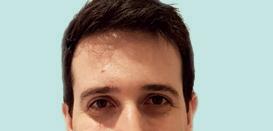

Dr Richard Daniels
Paediatric Registrar St Mary’s Hospital @DrRDaniels
Following on from last issue’s chicken chat, we’re now going to segue to Buffalo, specifically the peri-Niagara city in upstate New York. There, the 1960s gave three wonders to the world – delicious spicy wings and, arguably more importantly, two creations from microbiologist, Dr Robert Guthrie. Guthrie became interested in preventing intellectual disabilities after his son and niece were affected. His niece was diagnosed with phenylketonuria (PKU), which had been found
a few years before to be treatable with dietary restrictions. This was now a preventable disease, and the concept of newborn screening was… born. There were two prongs to Guthrie’s genius. He developed a bacterial inhibition test, which, when exposed to the high levels of phenylalanine seen in affected children, caused dramatic growth of bacteria. He also demonstrated a technique that could extract sufficient blood from a few drops soaked into filter paper. The simplicity allowed for rapid scaling, and within two years, it had tested over 400,000 babies, allowing for rapid intervention in 39 positive



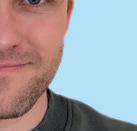
Dr Jonathan Baker
Neonates ST4
Queen
Alexandra Hospital
With the incidence of paediatric inflammatory bowel disease (pIBD) rising and predicted to affect approximately 1% of people in the UK by 2030, it’s a topic that will increasingly be part of our working lives.
This recently launched podcast discusses developments in our understanding of pIBD and is targeted at healthcare professionals, as well as patients and their families. Hosted by Dr Tracy Coelho, consultant paediatric gastroenterologist in Southampton, and Dr Chris Bakewell, who
We’d love to hear from you, get in touch through our channels
X @RCPCHTweets
Facebook @RCPCH
Instagram @RCPCH milestones@rcpch.ac.uk
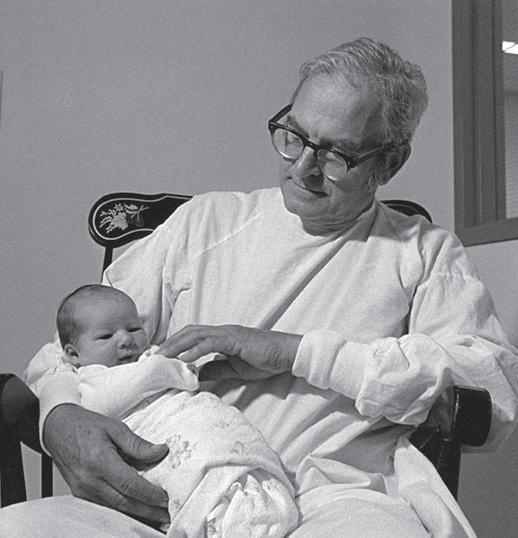
cases. He then expanded the test to other conditions, such as galactosaemia and MSUD.
Today, the National Screening Committee manages the programme in the UK. Newborns are screened for nine conditions – six metabolic, cystic fibrosis, sickle cell disease and congenital hypothyroidism.
Recommendations are updated every four months with 32 conditions under review. Each uses the same criteria and the same sample as Guthrie worked out; 65 years on, little has changed. Guthrie took no royalties. His 5% went to children’s charities.
With this breakthrough came a proposed checklist for screening programmes to meet, adopted by the WHO in 1968. Conditions needed to be significant, understood and treatable. The test needed to be valid, cost-effective and easy to administer. Finally, it needed to be sustainable. Arguably, this was the first time all these requirements had been met.
has recently completed his CCT in paediatric gastroenterology, episodes feature some outstanding guests.
Though the broad focus is, of course, pIBD, the data and intellectual debate are interspersed accommodatingly with personal asides about the guests, making the show feel more like a chat over coffee than a lecture and, overall, the pacing makes it very easy to consume. The show also features tongue-in-cheek poetry, written and performed by Dr Coelho, which pokes a little fun at academia and the rapid advance in research around IBD, among other things. Overall, it makes you consider the benefits of many of the changes coming to the world of pIBD.
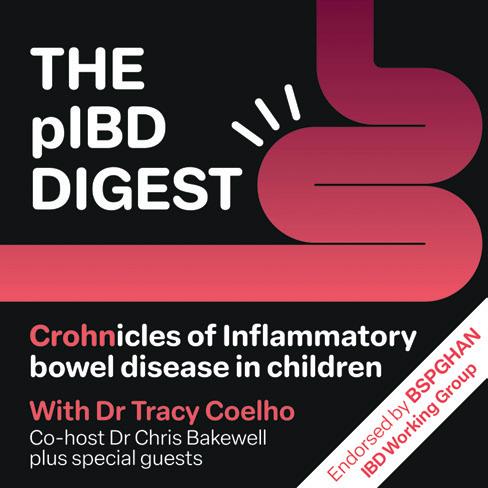
Scan the QR code to find the podcast in the Apple App Store or search for the title wherever you listen to podcasts:

Professor Steve Turner RCPCH President
1. What inspired you to pursue a career in paediatrics? Training to be a doctor, I enjoyed adult and paediatric medicine and, as a final year medical student, I was asked to accompany a child by helicopter for a liver transplant. Afterwards, I thought – paediatrics it is!
2. What is most rewarding about serving as President? Working with fab people and hoping to make an impact on members and patients.
3. Who has been your biggest influence, professionally or personally? Having two parents in the NHS is a personal influence, but I also worked with a couple of inspiring paediatricians who taught me to always have a plan!
4. What’s the biggest challenge facing paediatricians today? I think there are two: getting the work-life balance right, and delivering world-class care for our patients.
5. What advice would you give young doctors considering paediatrics as a specialty? Go for it! Whatever career you ultimately choose, you are likely to need experience of paediatrics, so at least get a flavour of paediatrics for your own personal career, and you might well use it later on.
6. What’s a fun fact about you that most people don’t know? I inherit my phones from my children. One had a game called Crossy Road on it. I have to play every day to make sure I’m
1. What inspired you to become an RCPCH &Us volunteer? I was at the GOSH youth group and we came to RCPCH for a meeting and thought ‘oh this is cool!’ Soon I was in parliament giving a speech on mental health!
2. What do you enjoy most about volunteering with RCPCH &Us? I’ve been volunteering for almost nine years, and it’s a safe space for everyone to express their views; no one is negative about other people’s opinions, and all the information is used more than once rather than forgotten.
3. Who or what is your biggest source of motivation? Me, because my confidence has grown, but also the people around me. I’ve learnt a lot from Emma Sparrow, Head of Children, Young People & Engagement – but also all the people I’ve met along the way.
4. What’s the biggest challenge facing children and young people today? Age bracket-related moves in healthcare services – there are so many gaps when, for example, moving into adolescent or adult services, or waiting to get referred into adult services because you’re almost 16 when you get a new diagnosis. You can be left in no man’s land waiting.

7. Who would you invite to your dream dinner




5. What’s one thing paediatricians can do to better engage with young people? Personalise care in a way that breaks the ice. Start on the same page – for example, if they like The Simpsons, talk about it. Don’t just go straight to the medical because you’ll lose a lot of young people straight away.
10. What’s your wish for child health in the next 10 years? I wish for equality – to eradicate the postcode lottery and age gaps. still in the top 10! party?


My wife! But also the World Cup-winning England rugby team from 2003. Hearing their stories about it would be fantastic!
6. What’s a fun fact about you that most people don’t know? I have my Level 2 in sailing! I can sail on my own, which I am very happy about.


8. What activities do you enjoy? I like watching sport – rugby, football, swimming, athletics, cricket and golf. Also doing crosswords, and I’m a closet stamp collector.






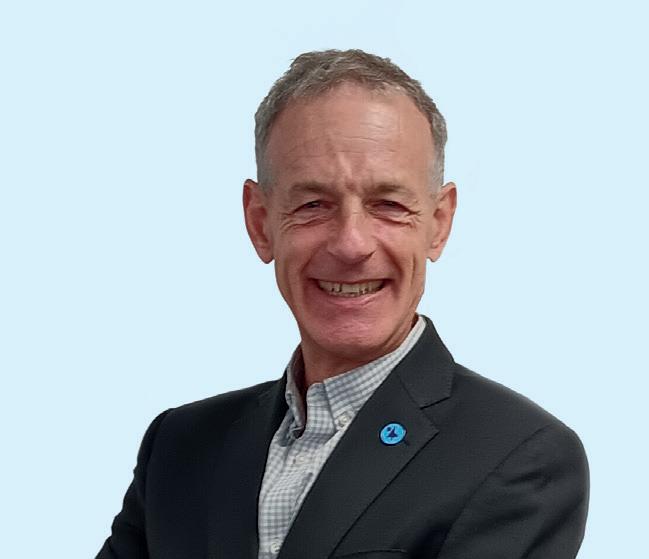


9. If you could give one piece of advice to your younger self, what would it be? Back yourself – it might not go to plan, but go for it!





10. What’s your wish for child health in the next 10 years? That local and national governments automatically think ‘child’ when making decisions.

7. Who would you invite to your dream dinner party?


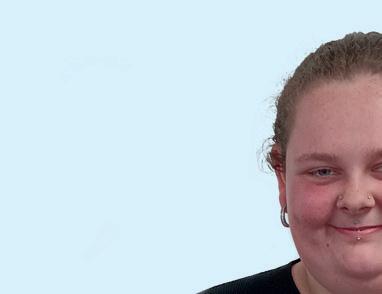
invite . My and


My nan… and David Bowie! I really like Labyrinth nan likes him, too, so it would be a good dynamic.

8. What activities do you enjoy? Poetry and writing. I can draw, but not too well!
9. If you could give one piece of advice to your younger self, what would it be? Keep using your voice because one day people will hear it.

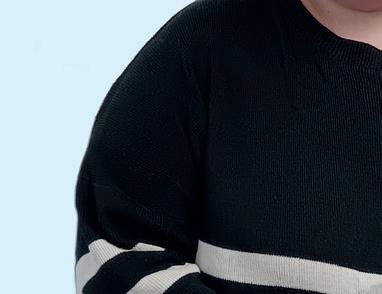

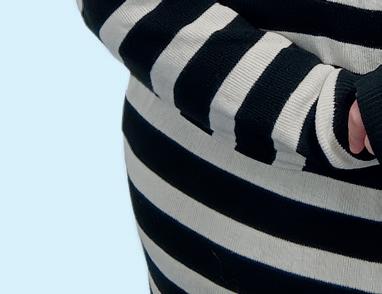
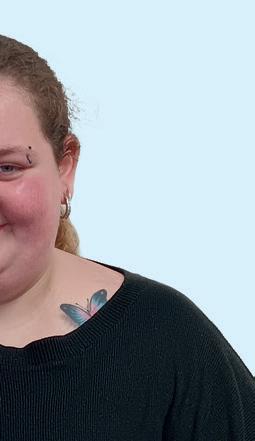


Hanin Aged 20
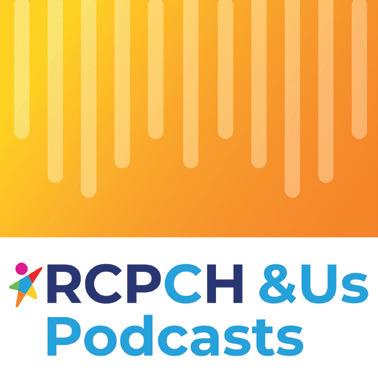
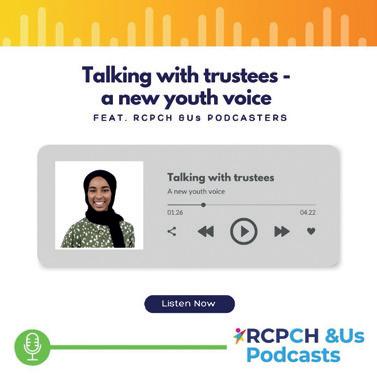
This RCPCH &Us podcast, hosted by Ethan, introduces us to our Youth Trustees, Taona and Iman. The conversation covers their goals, experiences and commitment to ensuring that the voices of children and young people remain the main focus in paediatrics. I really valued hearing how both trustees emphasised advocacy, inclusivity and the importance of listening. Taona’s story about the challenges in child health in Malawi was inspiring, and Iman’s focus on tackling health inequalities really stood out. It showed me that young people can bring new ideas and experiences that adults might not always think about.
As both trustees are medical students, it also reminded me that being a good doctor isn’t just about medical knowledge, but rather about being kind, empathetic and open to learning from children and young people themselves.
I believe it’s incredibly important that doctors listen to this podcast because it shows how involving young people in health governance enriches paediatric practice. The RCPCH &Us podcast channel itself also reinforces why children’s voices must remain at the heart of healthcare. Listen here: rcpchandus.libsyn.com
Nathaniel Aged 14
This is a fun, simple game for three to six players aged 10 and upwards. Each player has a set of coloured chips numbered 1 (bad) to 5 (worst) that you use to rank scenarios. A turn begins by spinning ‘the victim wheel’ before five scenario cards are revealed, ranging from bear attacks to shark swims, and everyone secretly ranks them using their chips to say how bad the situation is.
does not use as much prose in his writing makes it more manageable for people who do not read much fantasy, even if the large size is a bit daunting.
I would recommend this series and author to anyone who has an interest in fantasy, no matter how small, as this series will hook you in and you’ll be reading all of the books before you know it. Suitable for ages 13 and upwards, I give it 5/5 stars.
Natalia Aged 14
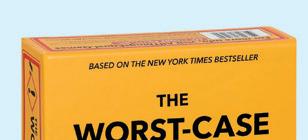
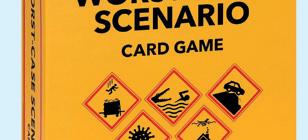
Players try to match the victim’s ranking, so it isn’t all about what you think; you need to be inside their head. It’s a great way to see how others think and a fun way to get to know people. More players make it even better. I learnt my brother thought that living with really slow internet was worse than having hiccups for a year!

Toby Aged 20
GeoGuessr is an online game aimed at people aged 12 and upwards. You are placed in a random location on Google Maps and have to guess where you are in the world. There is a lot of strategy involved, lots of looking around, and it can be considered almost like a mind game.
You can play with friends and make parties of up to 100 people. I play with my friends almost every day and it has helped many of them with their geography skills (countries and their locations). Overall, GeoGuessr is a fun and educational game that anyone can participate in.

Natalia Aged 14
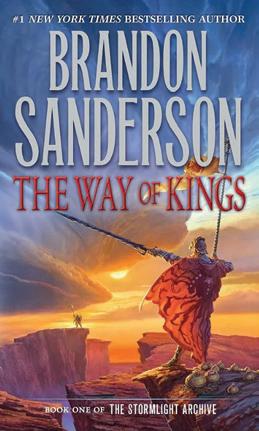
This is a five-book collection of high fantasy novels that feature expansive worldbuilding and complex magic systems. Sanderson reimagines the format that fantasy authors have been following since Tolkien and creates a completely new type of world. This was the series that got me back into fantasy, and the text being much easier to digest definitely helped with reading the 1,000+ page books that this series contains. The fact Sanderson













Boxing is a martial art which I have got involved in recently, and I enjoy it so much! It doesn’t require too much flexibility as there are no kicks; however, there is a massive amount of conditioning involved. This can help improve things like stamina and/or agility. Boxing can also be done recreationally, just as a bit of exercise. It’s also very easy to grasp types of punches (jabs, crosses, hooks etc). Overall, I highly recommend boxing as a new hobby!






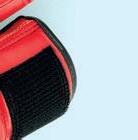






Dr Ashish Patel Consultant Paediatric Nephrologist
Alder Hey Children’s Hospital
@DrKidneyAsh
I get a lot of baking requests, mainly from my nephew and godsons, who are certainly my biggest fans. Whenever I ask them what to bake, they always come out with “CHOCOLATE!” and my heart just sinks. Don’t get me wrong, I love a cheeky chocolate, but chocolate bakes can become sickly and rich after a few mouthfuls. Chocolate works best when used in small proportions or balanced out with other elements. Try these Nutella profiteroles: they are tons of fun to make with young kids – the cream and ganache are addictive! Perfect as a children’s party treat or a sharer at a dinner party. I promise there will not be any leftovers to take home. Enjoy and continue to spread the love of baking!
Ingredients
For the choux pastry
• 100g unsalted butter
• 125ml whole milk
• pinch of salt
• 1 tsp sugar
• 150g plain flour
• 4 large eggs
For the Nutella ganache
• 100ml double cream
• 75g Nutella spread
• 50g 70% dark chocolate
For the Nutella filling
• 250ml double cream
• 30g Nutella spread
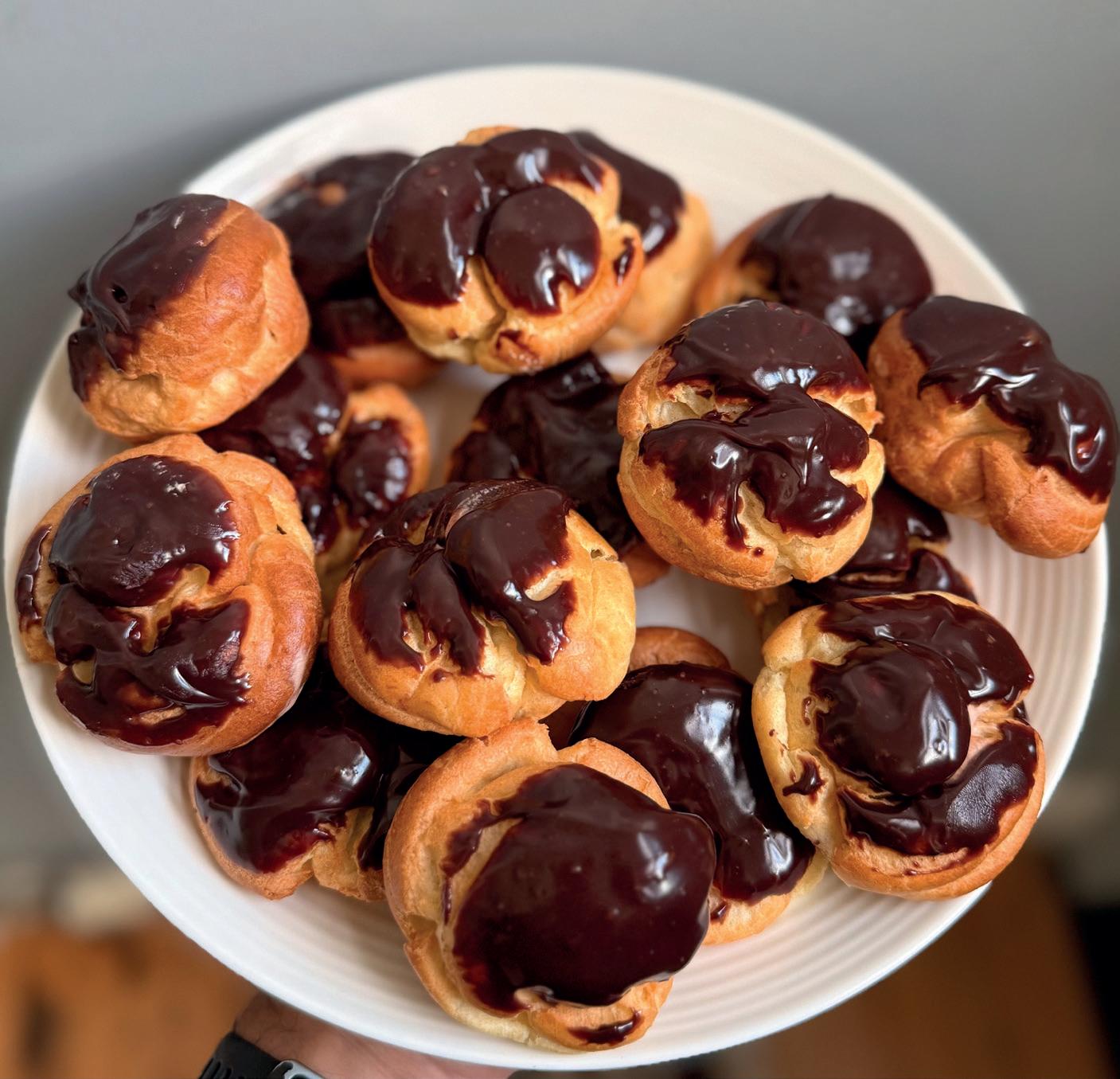
1. To make the choux pastry, melt the butter in a saucepan on a low-medium heat with the milk, salt, sugar and 125ml water. Once melted together, bring to the boil and then reduce the heat to low.
2. Add the flour and continually mix with a wooden spoon until you get a smooth, mash-like paste. Take o the heat and allow to cool for 10 minutes, then add to a mixing bowl.
3. Using a stand mixer on low speed, add one egg at a time until fully incorporated with the paste. Repeat the process with the remaining eggs. You should be left with a spreadable paste.
4. Line one or two trays with baking paper. Add the paste to a piping bag with a round nozzle at the end. Pipe even blobs onto the baking paper (roughly golf ball size), leaving a few centimetres of space between each. You may have points at the top of the blobs that you can fl atten with a fi nger dipped in water to make smooth domes.
5. Bake in a preheated oven at 180°C for 20 to 25 minutes until they are pu ed up and an even golden-brown in colour. Leave to cool.
6. Make the Nutella ganache by boiling the cream and pouring it over your Nutella spread and dark chocolate. Leave to melt for a few minutes and then mix until you get a smooth ganache.
7. For the Nutella fi lling, combine the cream and Nutella spread, and whisk until it has the consistency of soft whipped cream. Add the fi lling to a piping bag and snip the end.
8. With a wooden barbecue skewer, or equivalent, make a hole in the bottom of each profiterole so that you can easily pipe in your fi lling. Pipe your fi lling into each profiterole, then dip the top of each profiterole into the ganache. You can leave them to set slightly, or tuck right in. These are best eaten soon after baking, but will also last in the fridge for a few days.
Dr Josh Hodgson
Trainee Doctor, Paediatric Intensive Care Medicine, Evelina London Children’s Hospital Chair of the RCPCH Trainee Committee; @Dr_Josh_Hodgson
My typical day starts with an alarm at either 06:30 or 14:00. It will be a long day shift or a night shift on the paediatric intensive care unit, or maybe a day off – guess which alarm! I don my Lycra and fire up a podcast. A staple is The Rest is Politics, but my favourite is Legacy by Wondery, which takes a deep dive into people like Bob Marley, Marie Antoinette and Margaret Thatcher, and always manages to hit the sweet spot between history/culture and character-driven story.
The clinical work day on the PICU entails reviewing patients, performing procedures or other jobs and ward rounds. Sometimes it’s exhilarating… usually it’s not, but it’s always challenging and rewarding. The variety is immense. The first patient may be a baby recovering quickly from major heart surgery. The second may be an incredibly complex technology-dependent adolescent, where family interactions are even more important than clinical decision-making.
On non-clinical days, I enjoy additional variety from my management roles. I am now Chair of the RCPCH Trainee Committee. This is an enormous privilege and responsibility. It involves contributing to various meetings, producing material for active workstreams and projects, managing an amazing committee and responding to one or two emails – to put it mildly! But I love the contrast this slower-paced and higher-level work provides versus delivering hands-on critical care.
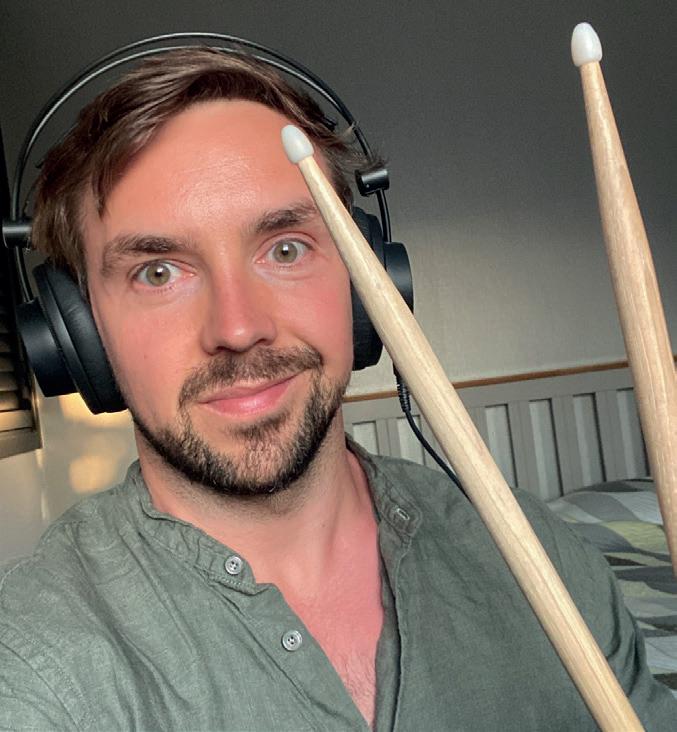
On my days off
I go to the gym, rugby (Saracens), a gig or a play. Recently, I’ve enjoyed productions of Stereophonic, Giant and Stranger Things. I love music, especially progressive metal, and I’m learning the drums. I love travelling and learning about the world, but more important than what I do is who I do it with. Days off are spent with family and friends.
The best bit of my job is talking to people. I think I’m weird. Most people hate managing difficult conversations with patients, carers or colleagues. Personally, this is one of the great attractions of working in the PICU. I think, in general, we are bad at having difficult conversations and truly advocating for the best interests of our
vulnerable patients and families. If we do this well, we can make a huge difference. And I relish that challenge. No doubt, though, I have endless respect for my seniors who have held such conversations for many years with continued patience and compassion.
I also love interacting with people from incredibly diverse backgrounds. In the PICU, this includes patients, families and a vast multidisciplinary team. My management roles involve building relationships with professionals from non-clinical backgrounds in an entirely different context. It’s honestly amazing and ensures I’m always learning.
The most difficult part of my job is talking to people. Whether that’s breaking bad news to parents, ensuring appropriately serious interactions at all times in the PICU or challenging experienced colleagues in meetings. But things are difficult because they matter, and that gives us purpose, which is helpful for those 06:30 alarms!
The last two words: People. Purpose. If I may be so existential, I think these two nouns are fundamental to our happiness. My varied work gives me enormous purpose. The people I surround myself with give me belonging. Let’s ensure that those we interact with, personally and professionally, know that they belong and that they matter. A day in my life is unimportant. A day in everyone’s life all together… now that matters.